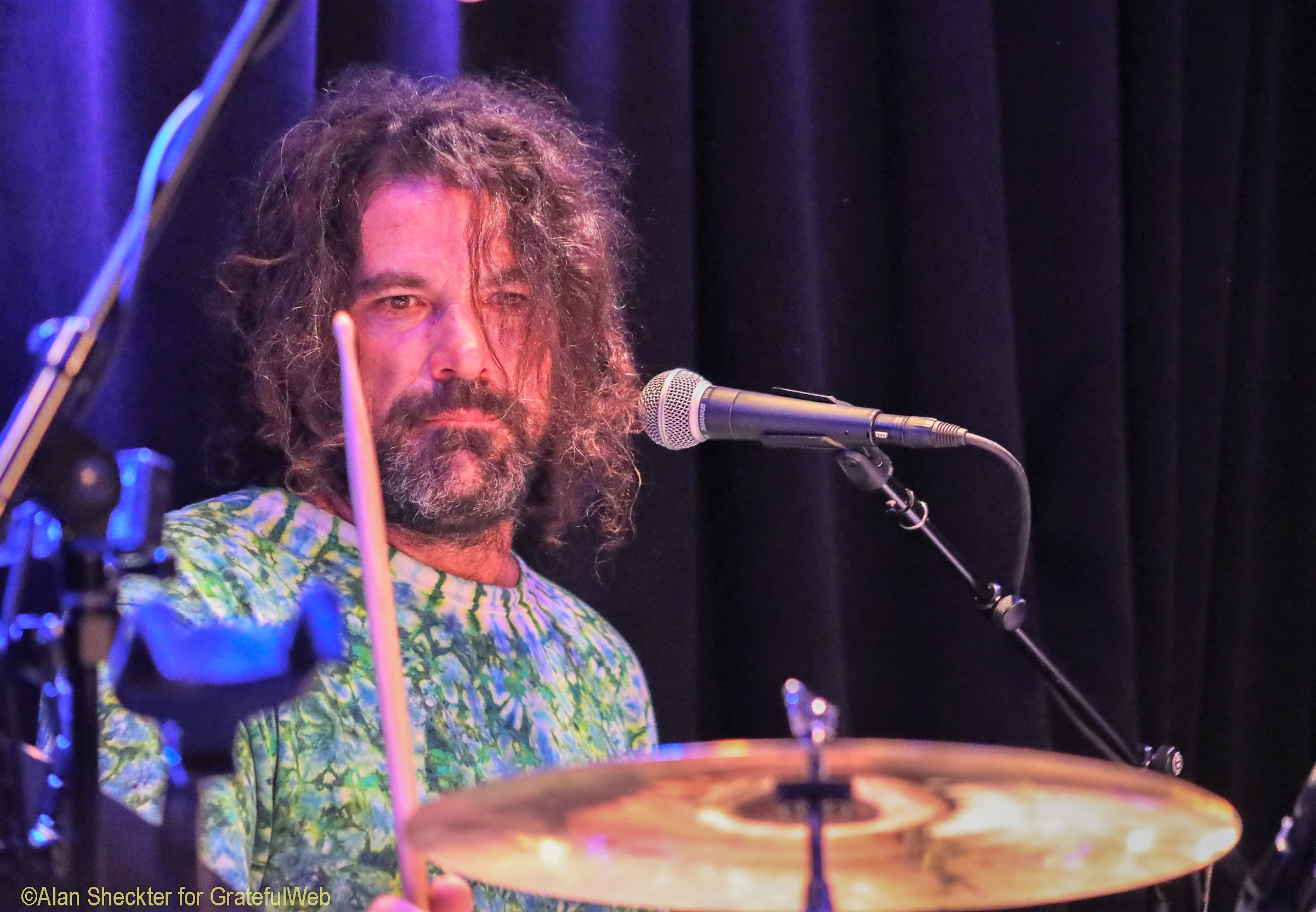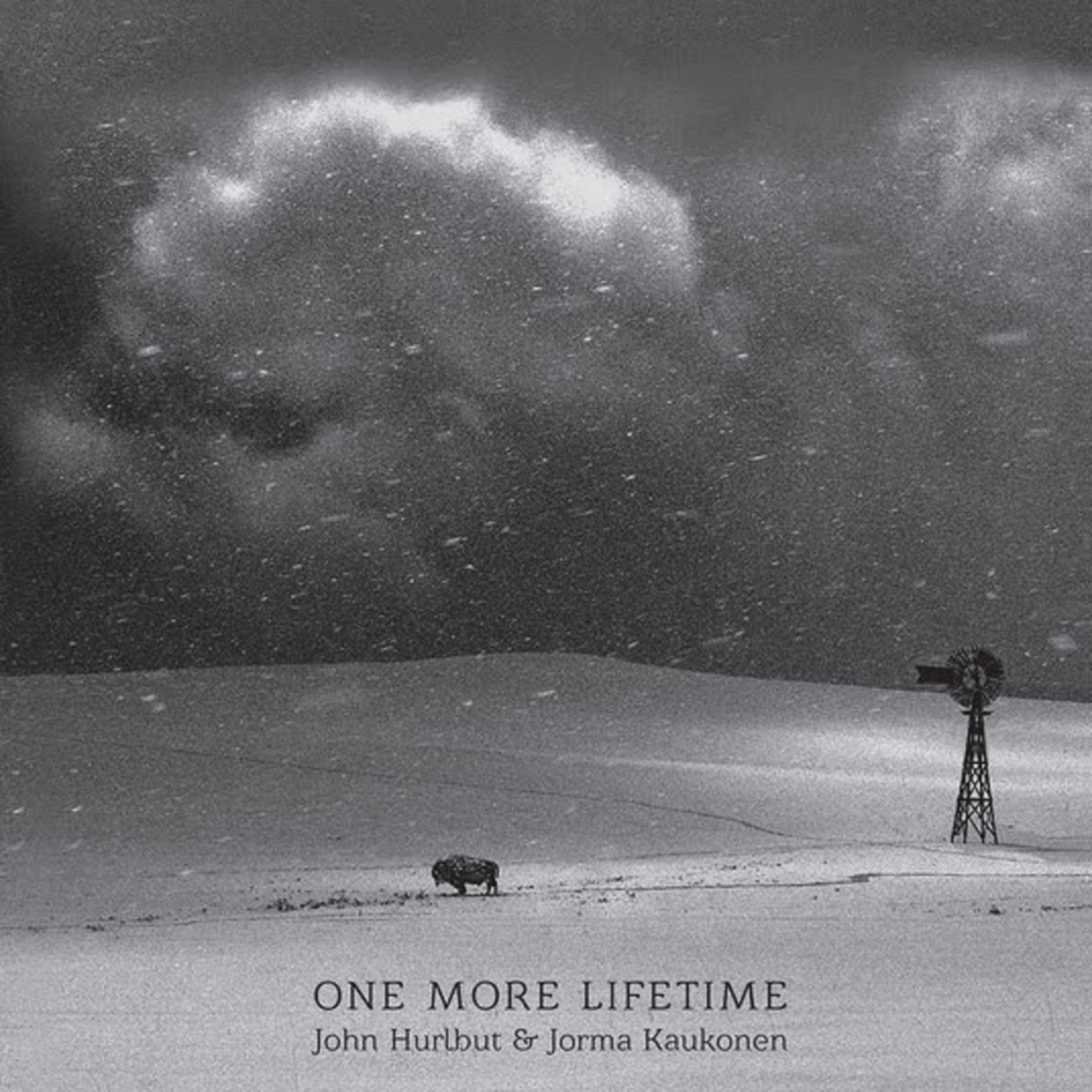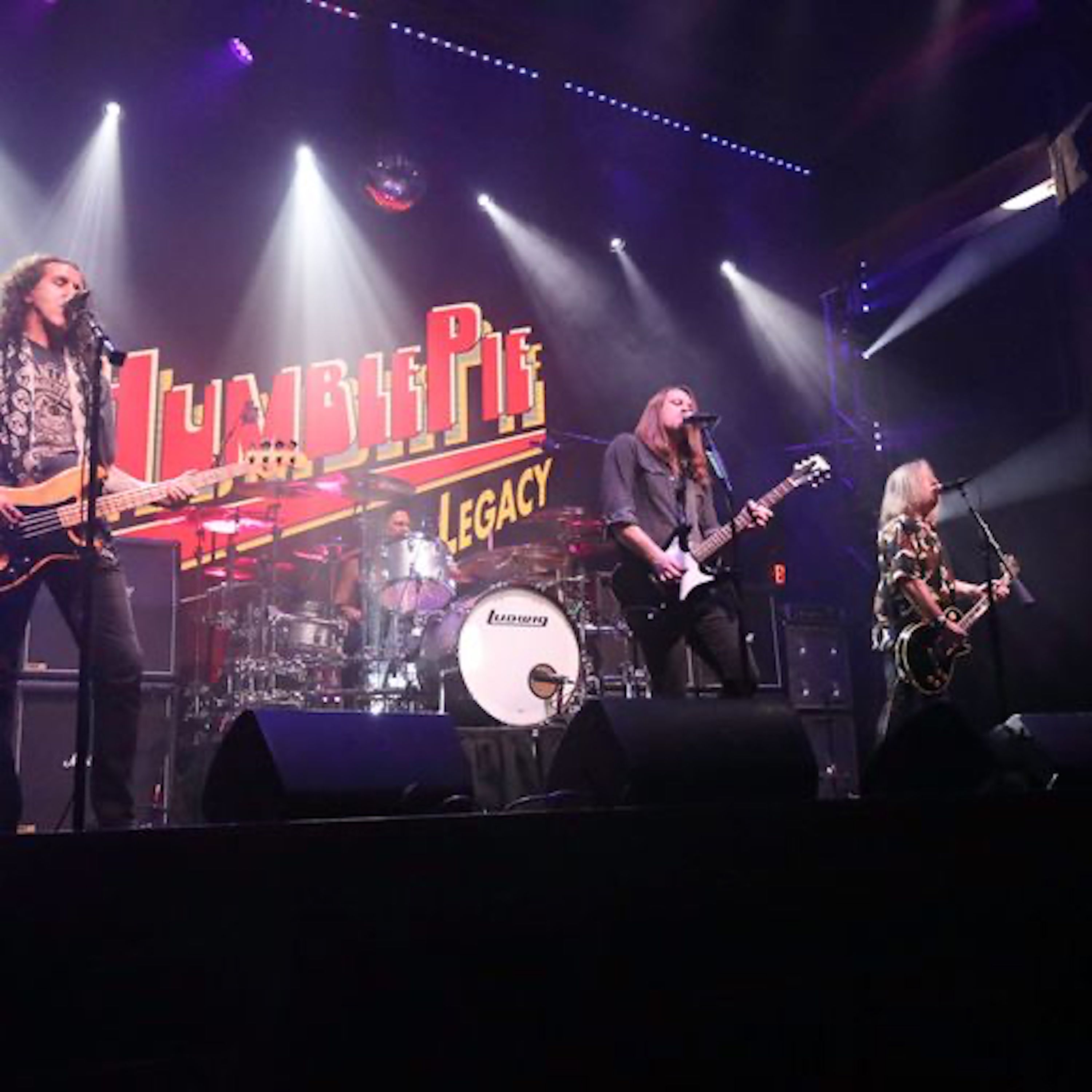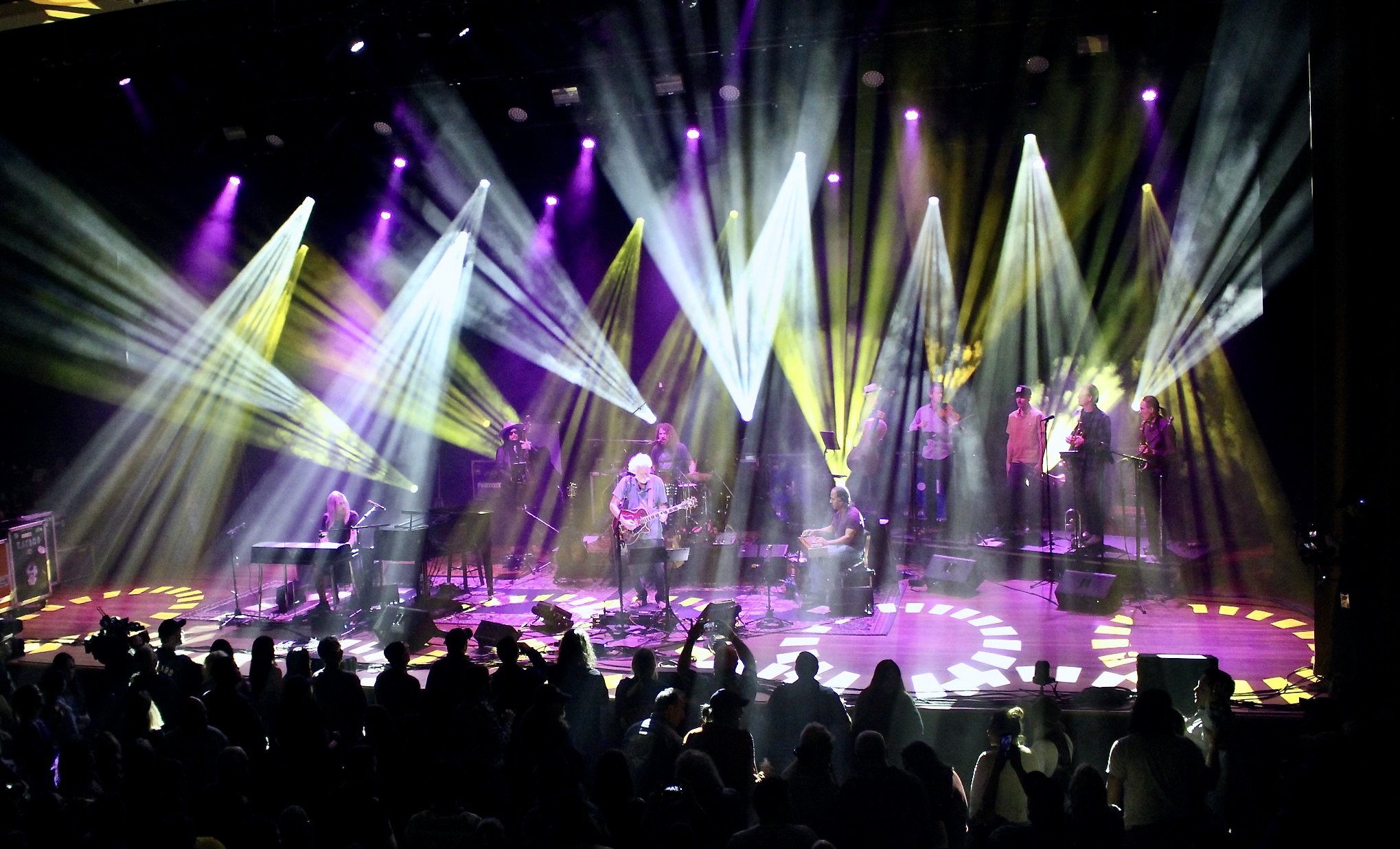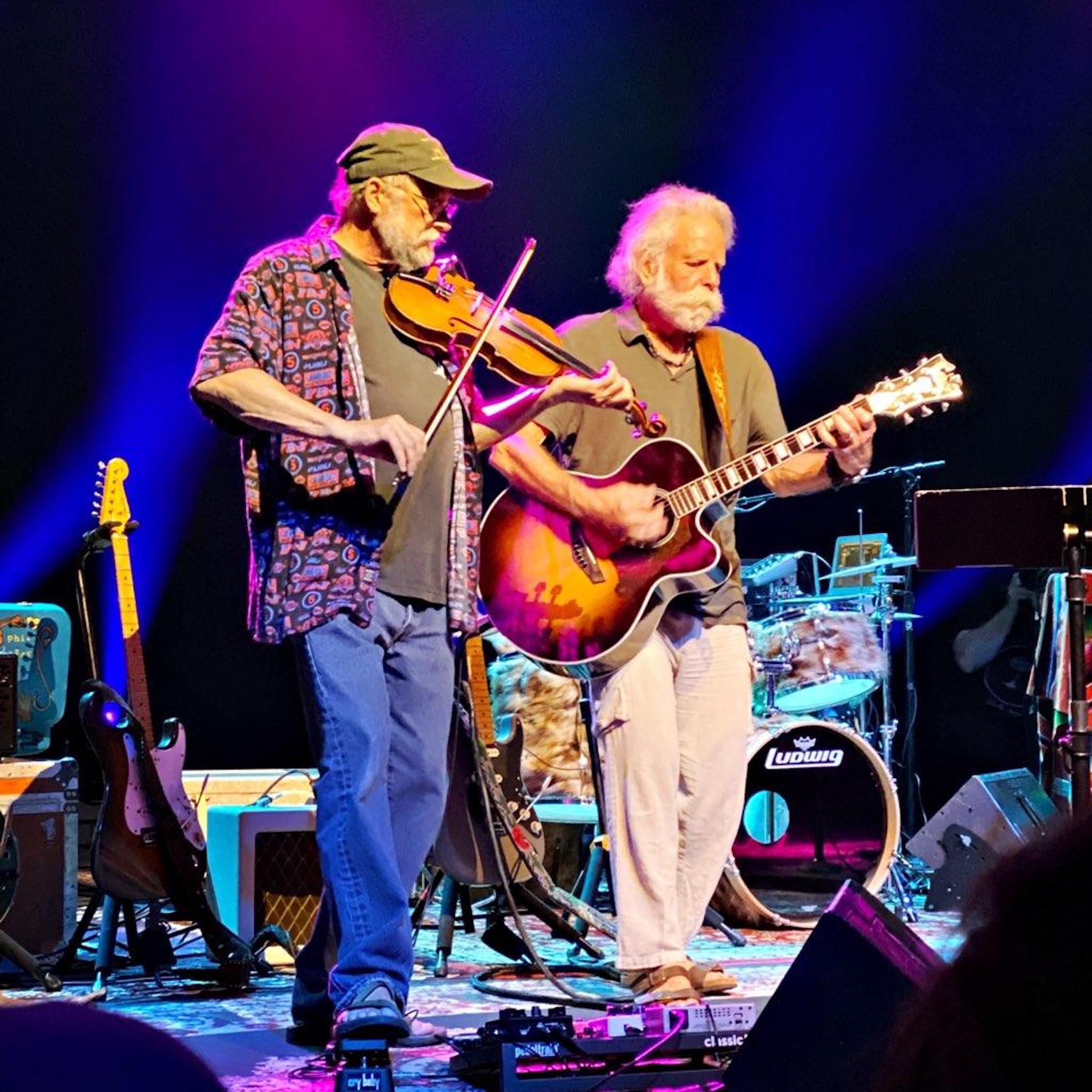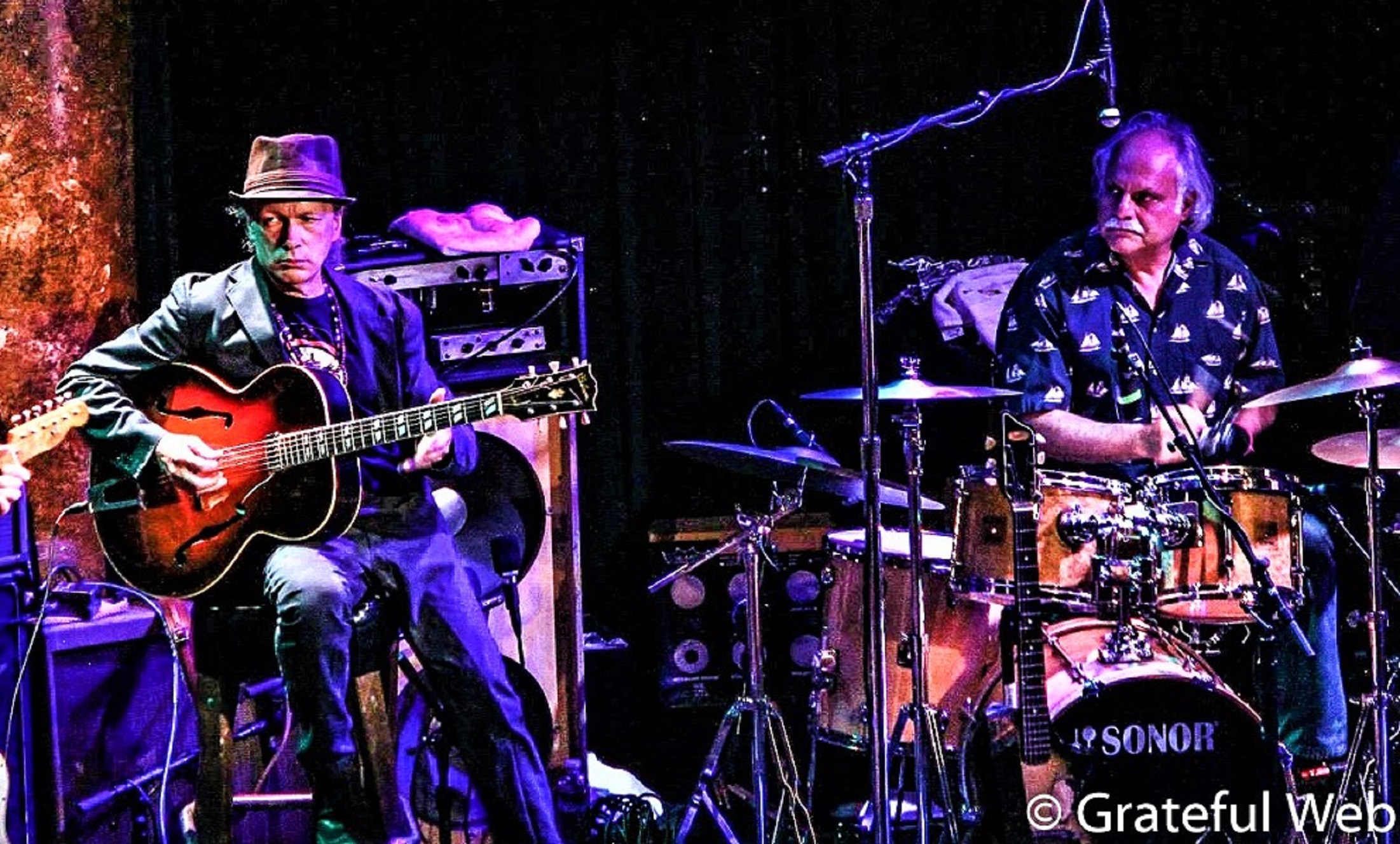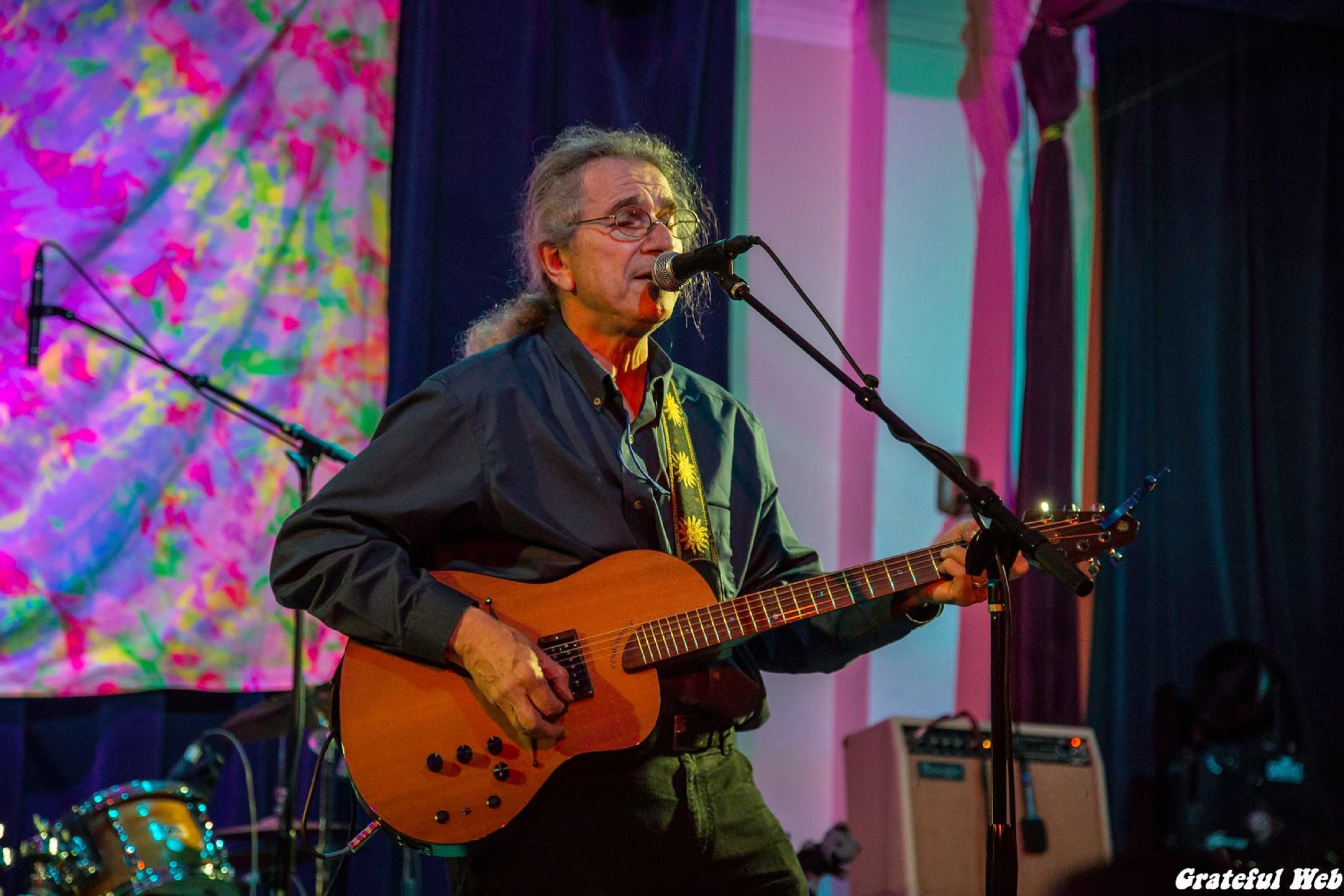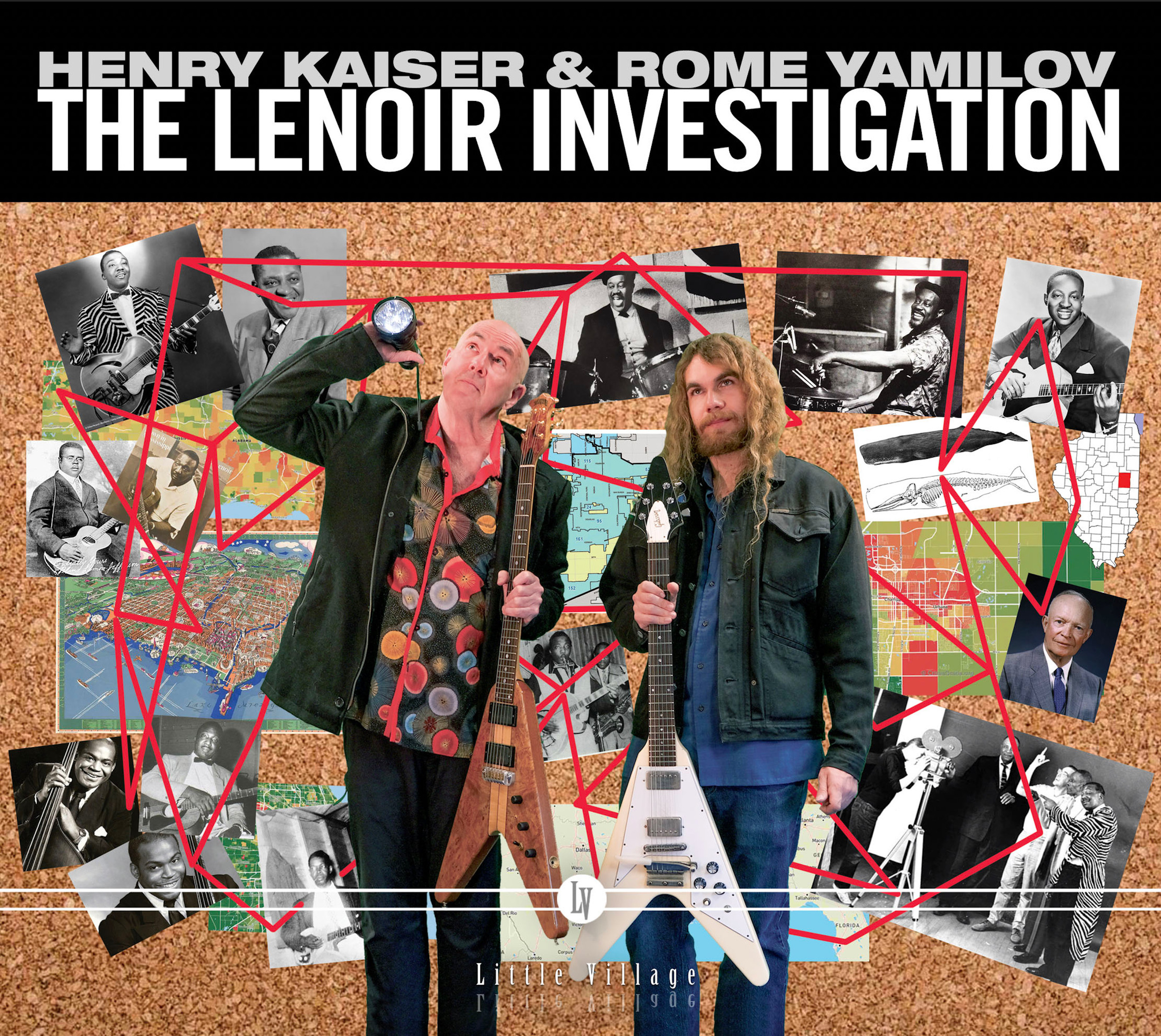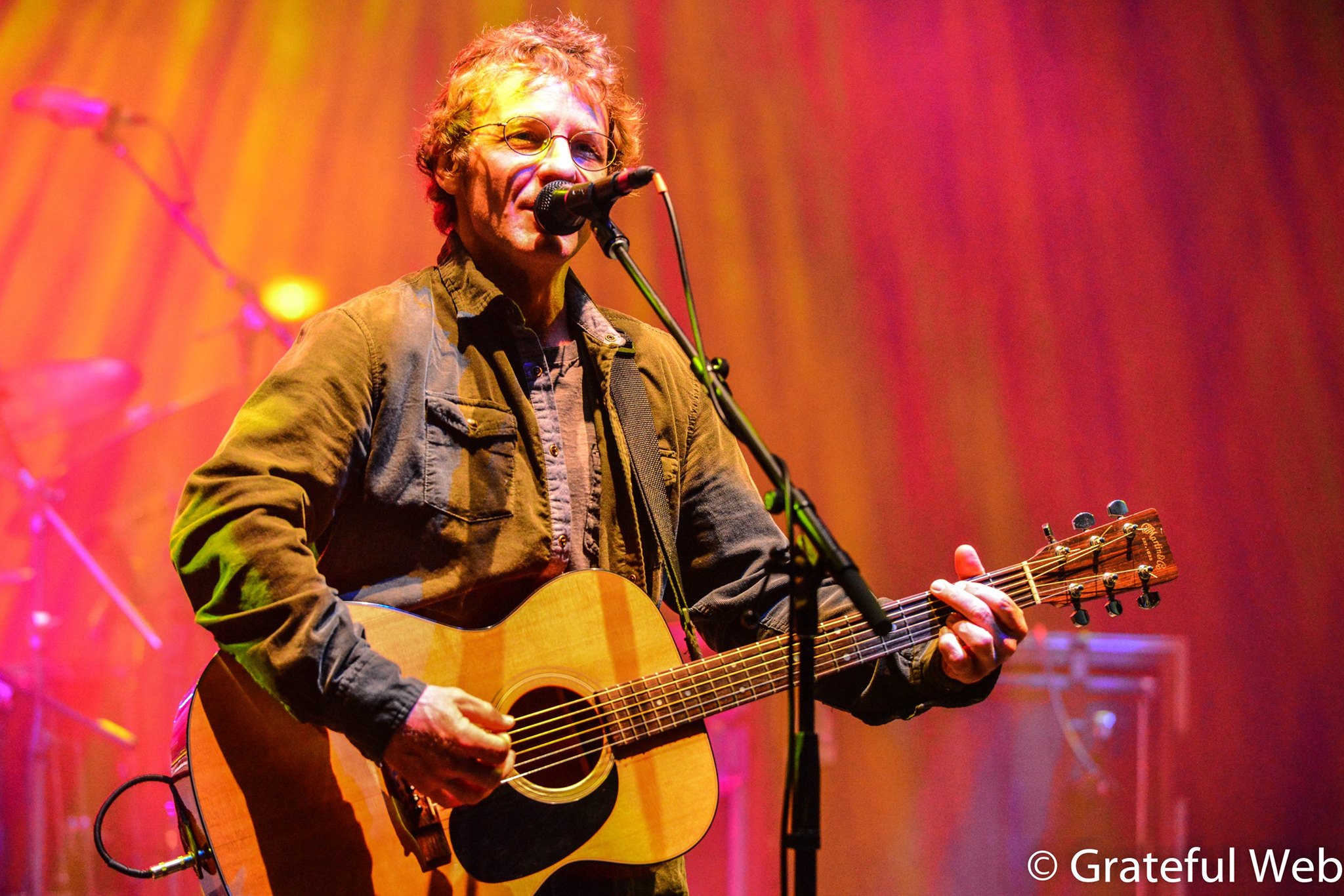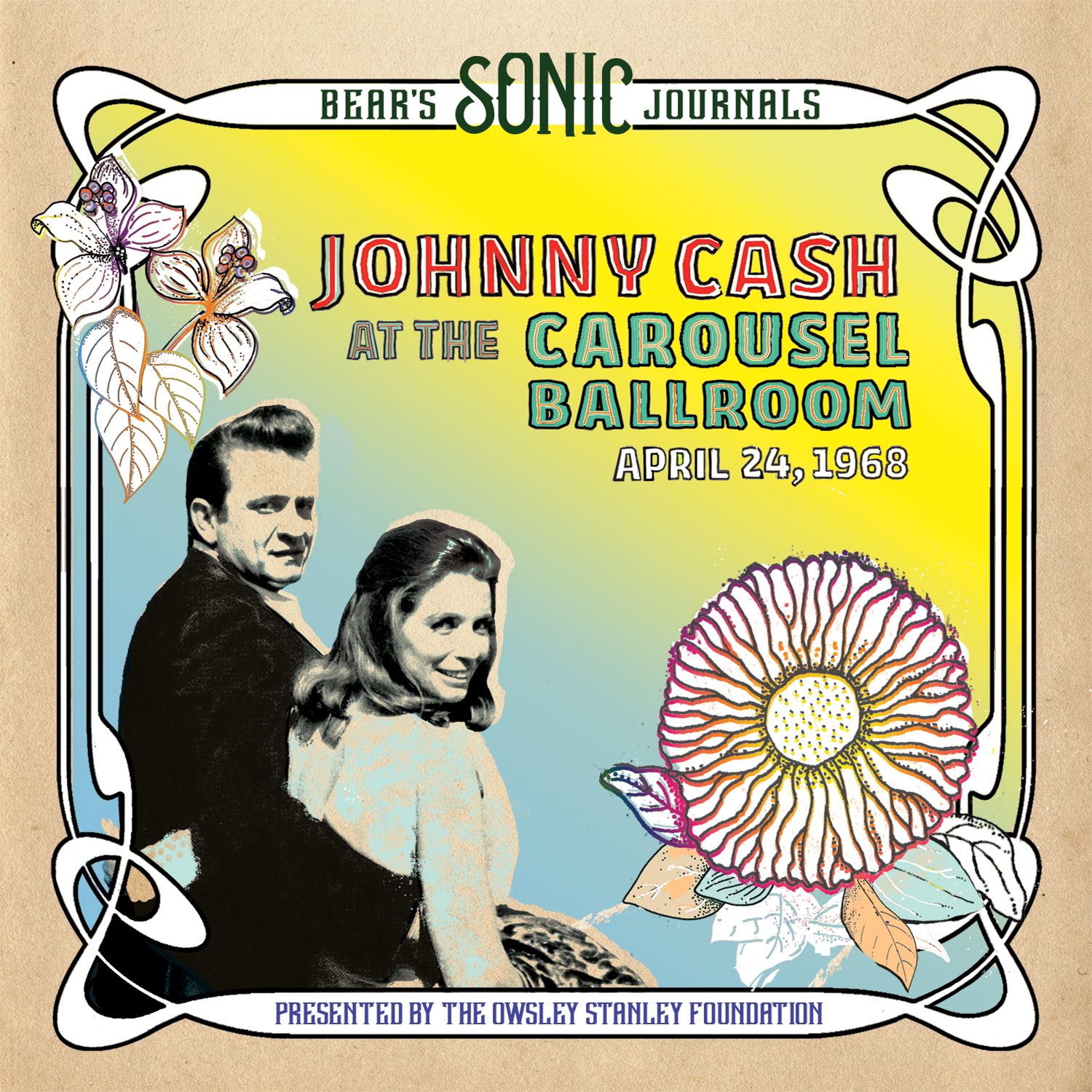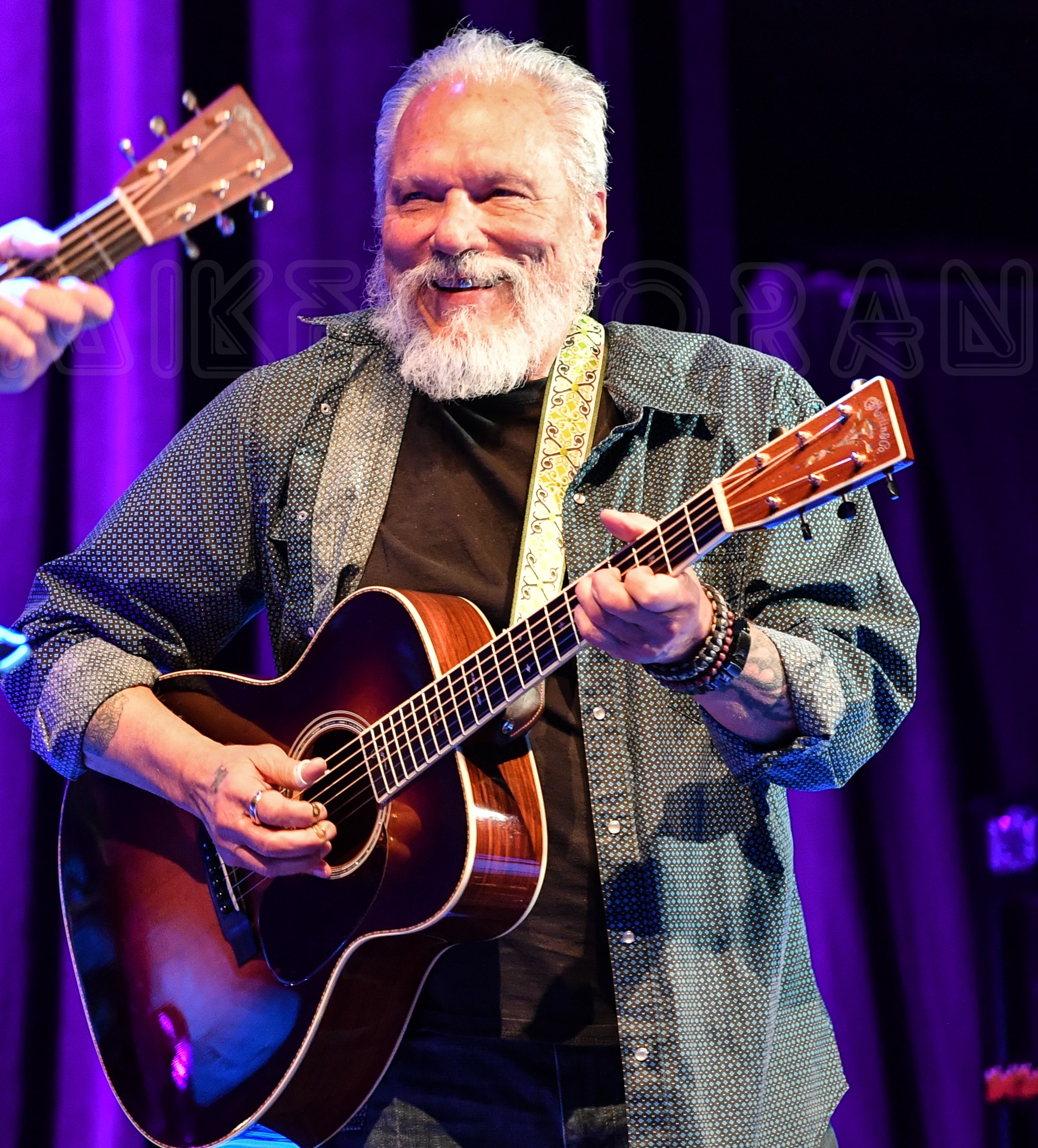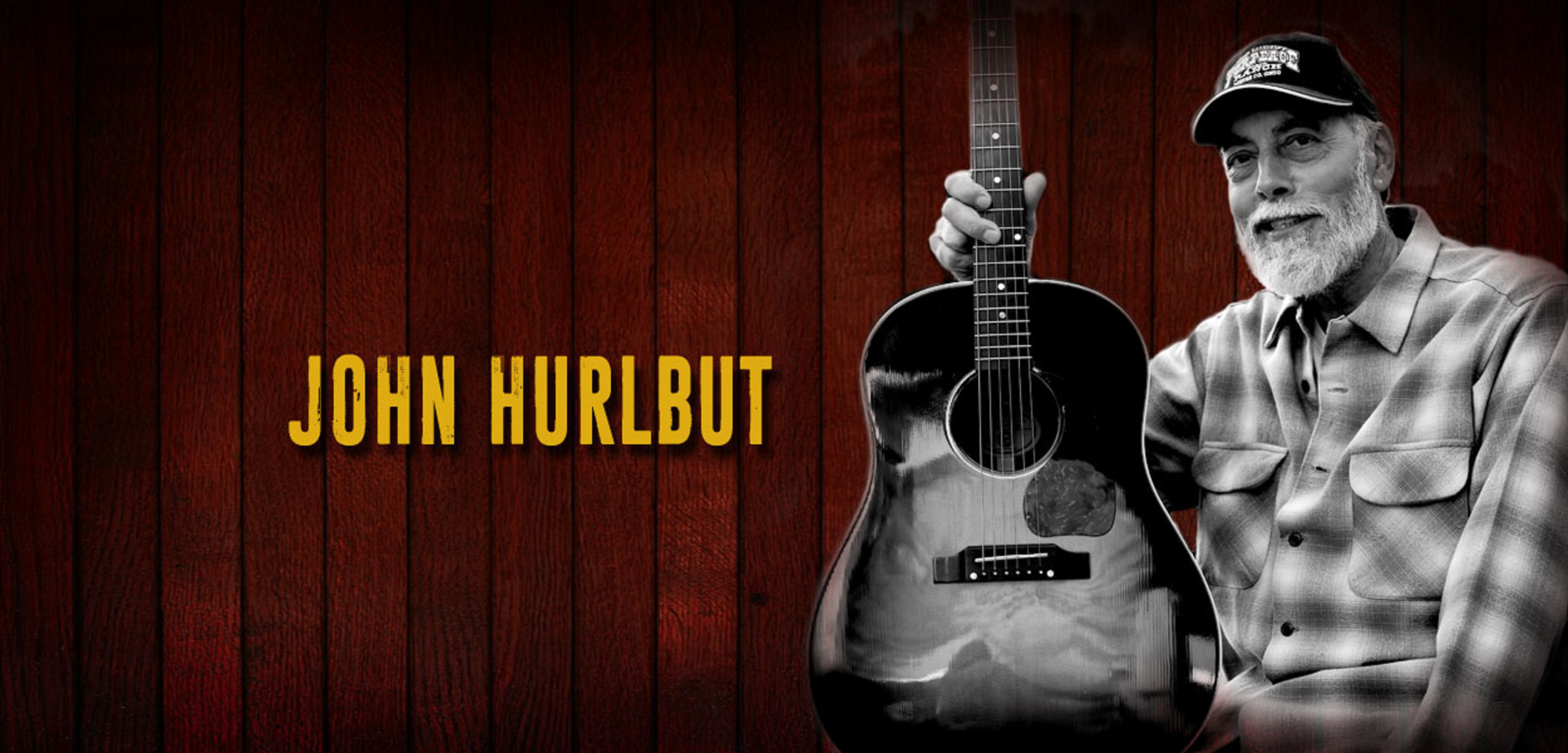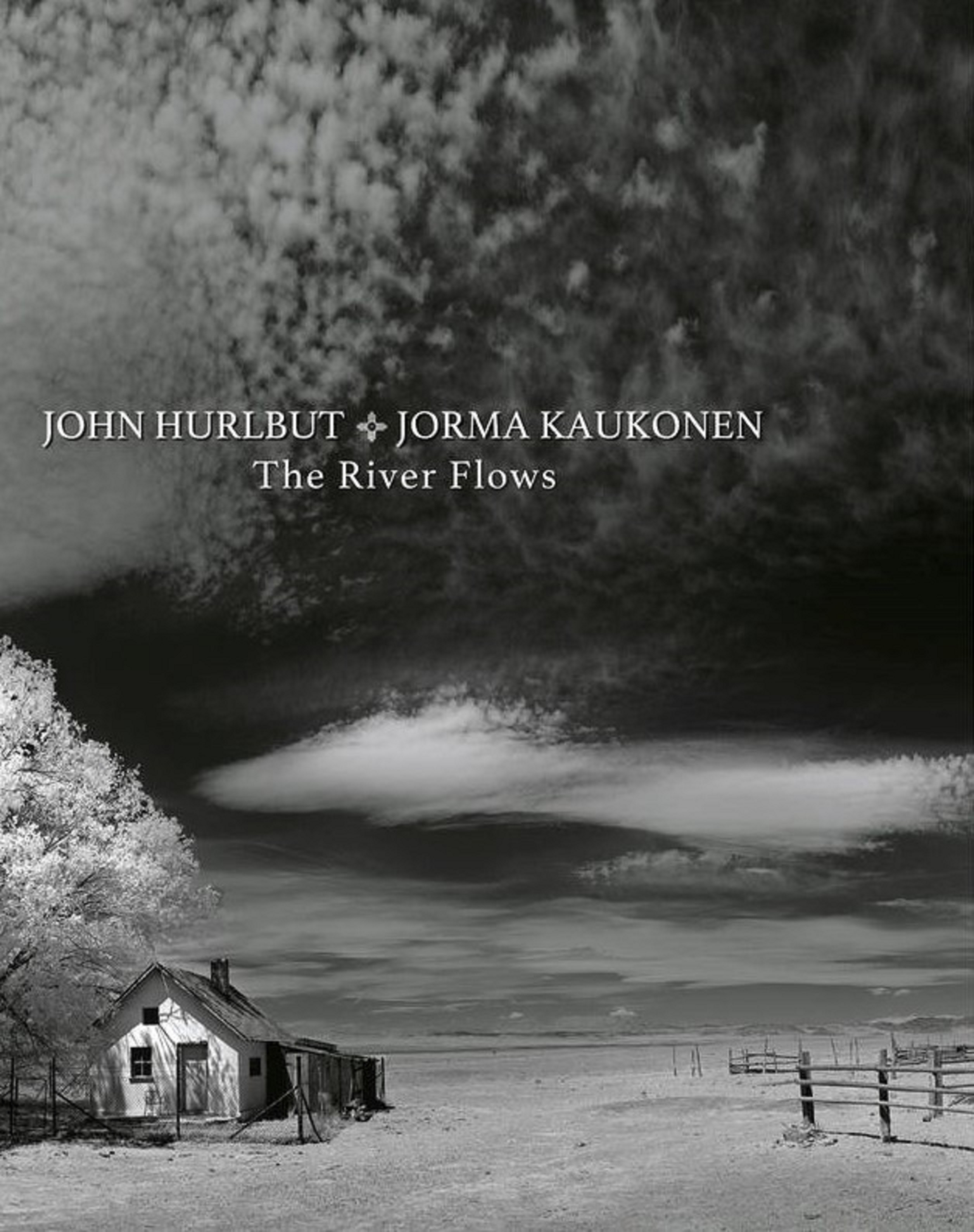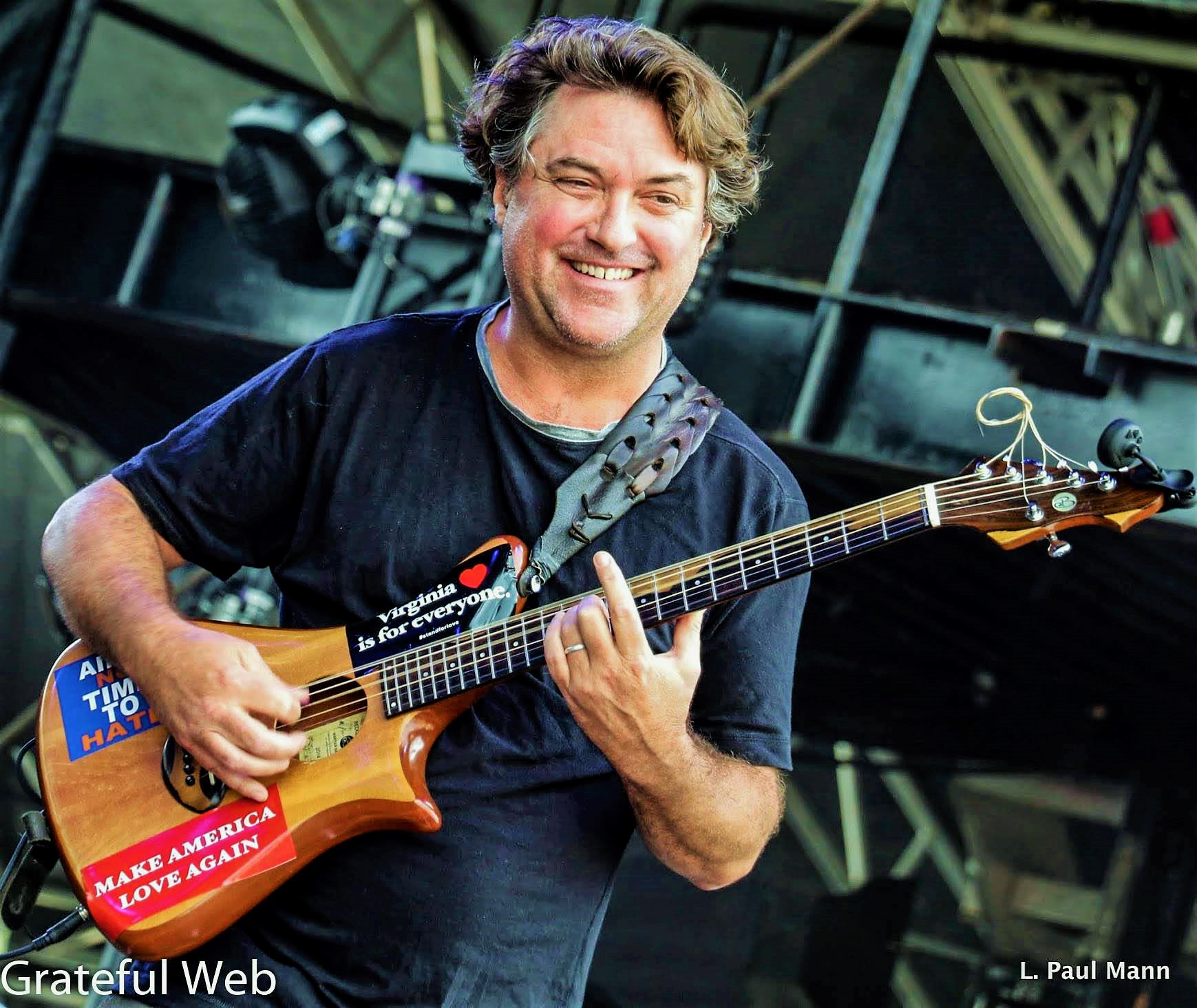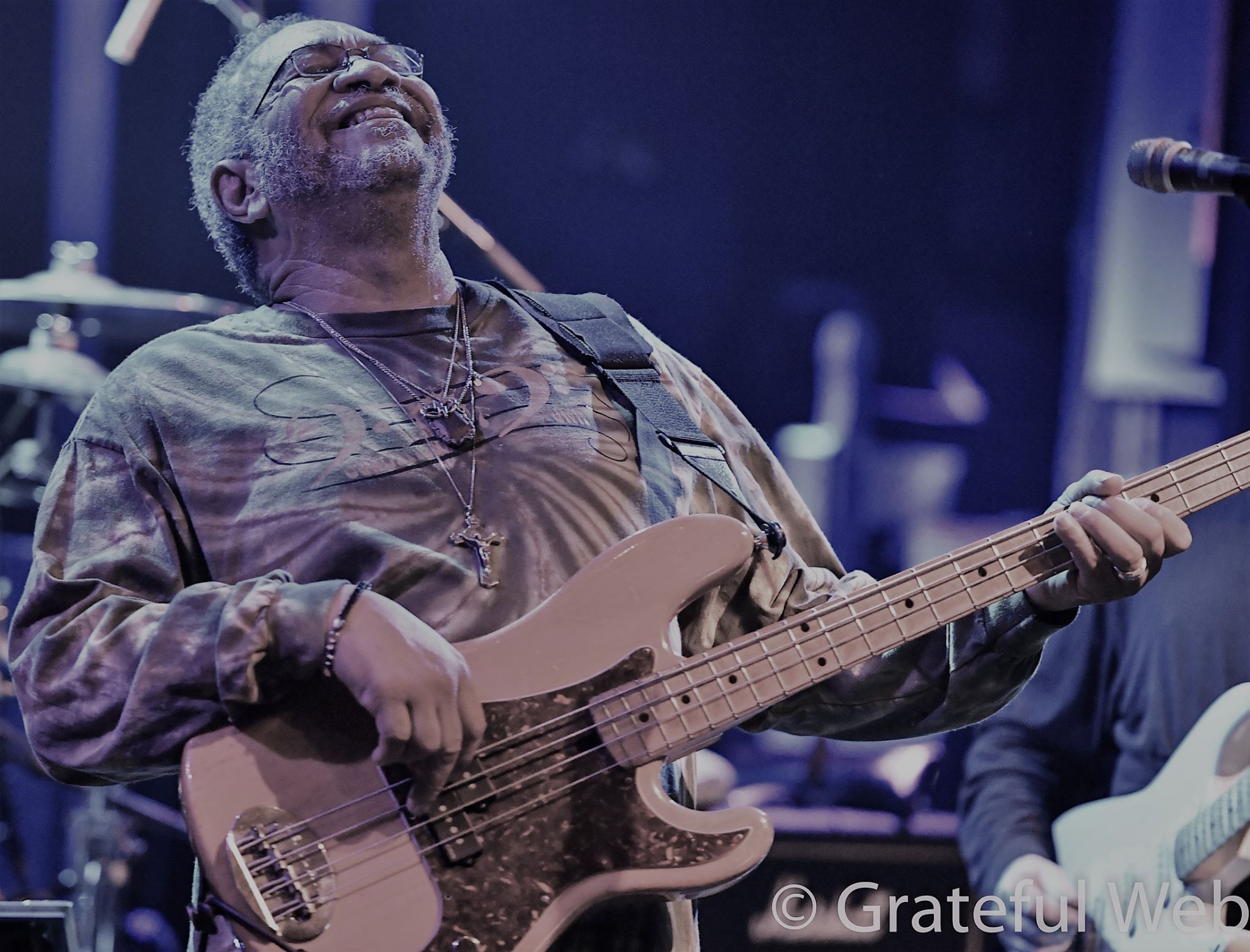Grateful Web is proud to announce a dream come true to any person who ever thought to pick up a drum stick or can’t help but pound out a beat on a thigh or tabletop. (Drum roll, please.) Wolf Brothers’ drummer, Jay Lane, is joining the staff at Blue Bear School of Music in San Francisco. Yes, you heard right, you can just click on a website or pick up the phone and learn the fine arts of drumming from Jay Lane. In returning to his old stomping grounds, Jay is making himself available to all comers who would love to know the wonderful world of music that so ingratiated him to the joys of rhythm and sound.
In just being human, we all have a certain appreciation for music to some extent or another. We each have shared many a personal time with song in allowing the glorious notes of vibration to move us in dance and celebration, or had them take us deeper into an understanding, or carry us through an emotional time. Yet this musical magic remains somewhat of a mysterious universe to those who have yet to learn an instrument, to know the joy of partaking in the making. However, many of us are still left to wonder—What is it about this musical world that inspires some to go so far? What drives this desire to reach out into the dimension of sound and take part in its song? And while some of us are at least driven far enough in its magic to learn to play, I still have to wonder why others are taken to the extreme by its power, are willing to risk the comforts and security of a daily job, live in poverty, or risk all just to take part? What is it that inspired them, offered that special insight into a world they couldn’t deny, even if it meant personal hardship? Inevitably, when this question is posed to these bards of harmony and chord, they fondly speak of a specific teacher, or perhaps a certain band, style of music, or a special school from which the doors were opened. This was no different for Jay Lane, the famed drummer from the likes of Furthur, RatDog, Primus, the Golden Gate Wingmen, and of course, Bob Weir and Wolf Brothers.
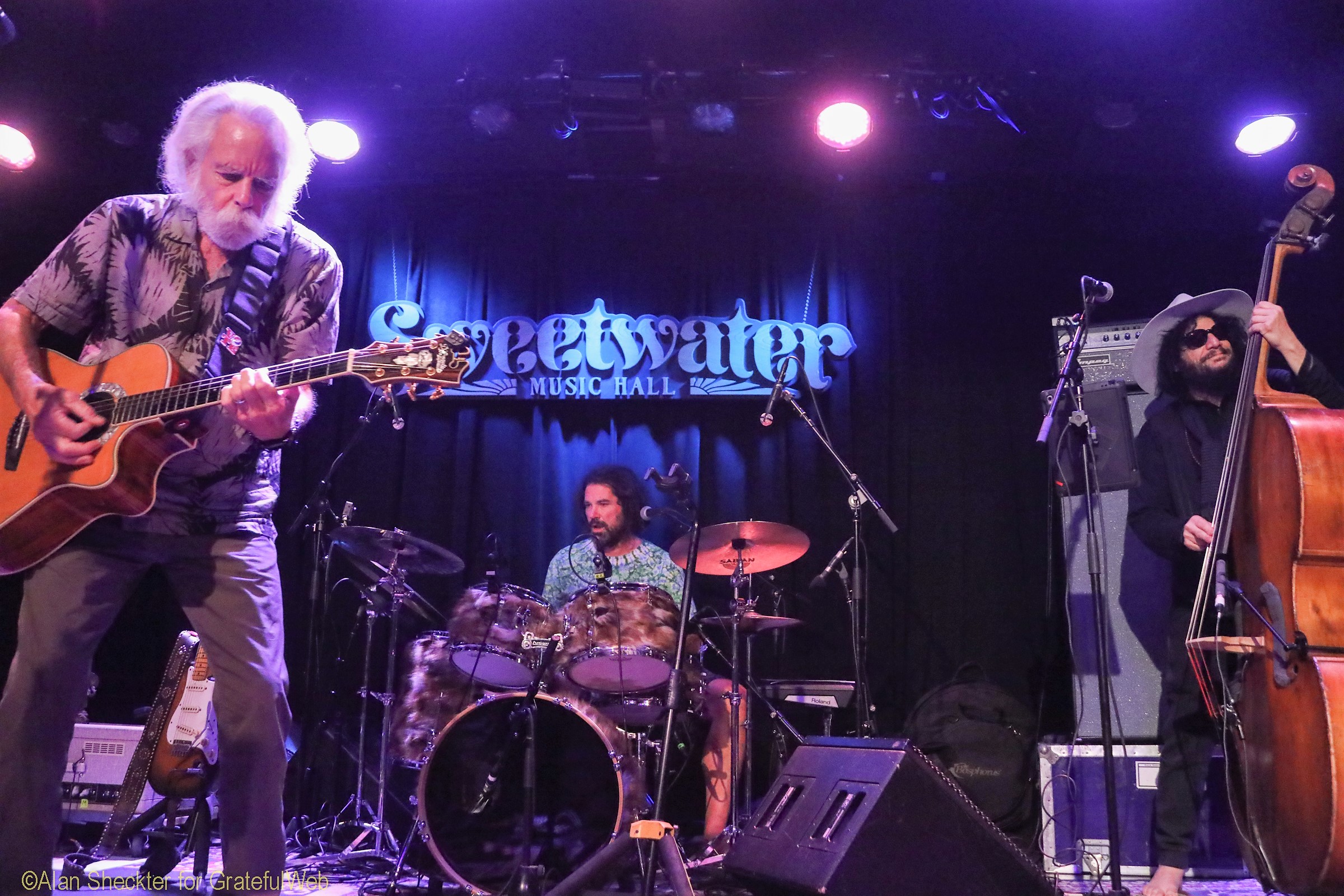
In chatting with Grateful Web, Jay Lane epitomizes this love and appreciation of music from his early nine-year-old beginnings to the first musician and teacher that inspired the magic touch within him. Speaking of the school that opened the doors to his remarkable musical journey, Jay tells us of how he’s returning to the infamous Blue Bear School of Music in San Francisco as a teacher in hopes of offering this inspirational favor to the next generation of musicians. And what a mind-blowing opportunity this is to any would-be drummer or young rhythmic pounder, to not only take part in Blue Bear’s phenomenal musical community, but to learn drums from RatDog, Wolf Brothers’ great, Jay Lane.
Established in 1971, Blue Bear has a long history of celebrity sponsors, including Tracy Chapman, Carlos Santana, the Doobie Brothers and John Lee Hooker among many others. With a full open door policy, Blue Bear teaches a wide variety of instruments to both old and young, novice and expert, while providing ample opportunities to the underprivileged in order to cultivate musical passion and skill in all musicians. Jay chose to sit down with Grateful Web to share his newfound joy in teaching, his love of music, and offer us an inside glimpse into what drives his sticks to pound out the beat. If you’d like the opportunity to meet with Jay and tap his brain for some rhythmic insight, one need only click into Blue Bear School of Music and your musical dreams will be answered.
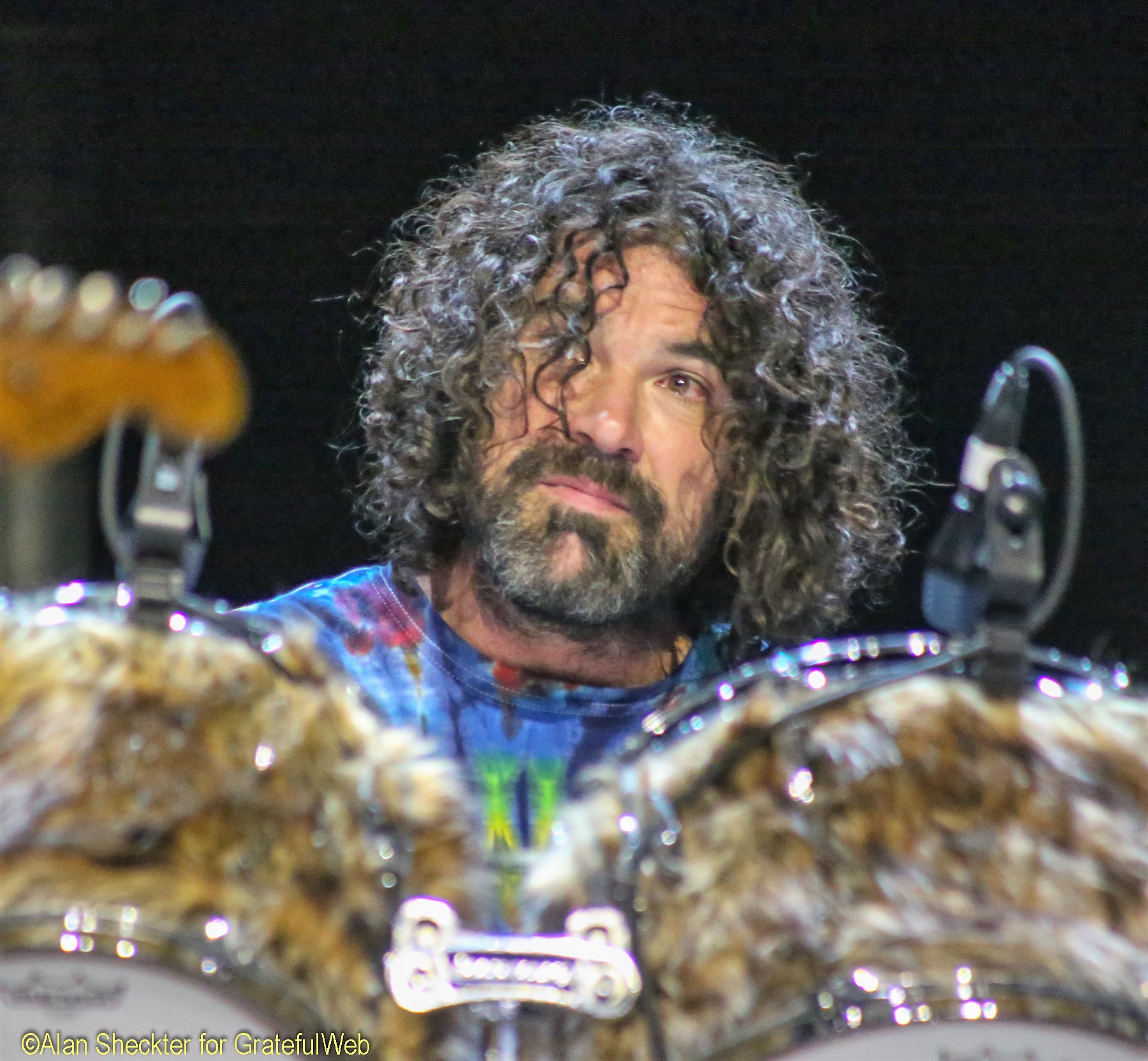
GW: Hello Jay.
Jay: Hey David. How are you today, man?
GW: Not too bad. And you?
Jay: Oh, I ain’t complaining. Somedays I’m complaining, but not today.
GW: [Laughs] I hear you there.
Jay: Yep, yep. Not today. I’m down in my studio. I thought this was going to be a Zoom call.
GW: Well, I think we’re better looking off screen.
Jay: [chuckles] There you go. I agree. I wasn’t quite ready. I was kind of stressing out. “Where’s the link? Where’s the link?” Oh, a phoner, cool.
GW: I always figured it’d be like the Jetsons but it’s not quite like that. Can’t get used to looking at myself in the corner.
Jay: No shit. Right. Well, I’m teaching lessons over the thing during the pandemic so I had to get the whole audio thing happening. And that’s kind of tricky because I have my drum set up across the room—but then I have the computer across the room—so I had to get another camera. But then I’m not looking at the camera. So it’s kind of tricky. I’m not really use to it. It’s something I gotta get used to.
GW: I guess that’s why we’re talking, because you’re now playing teacher-guy at Blue Bear.
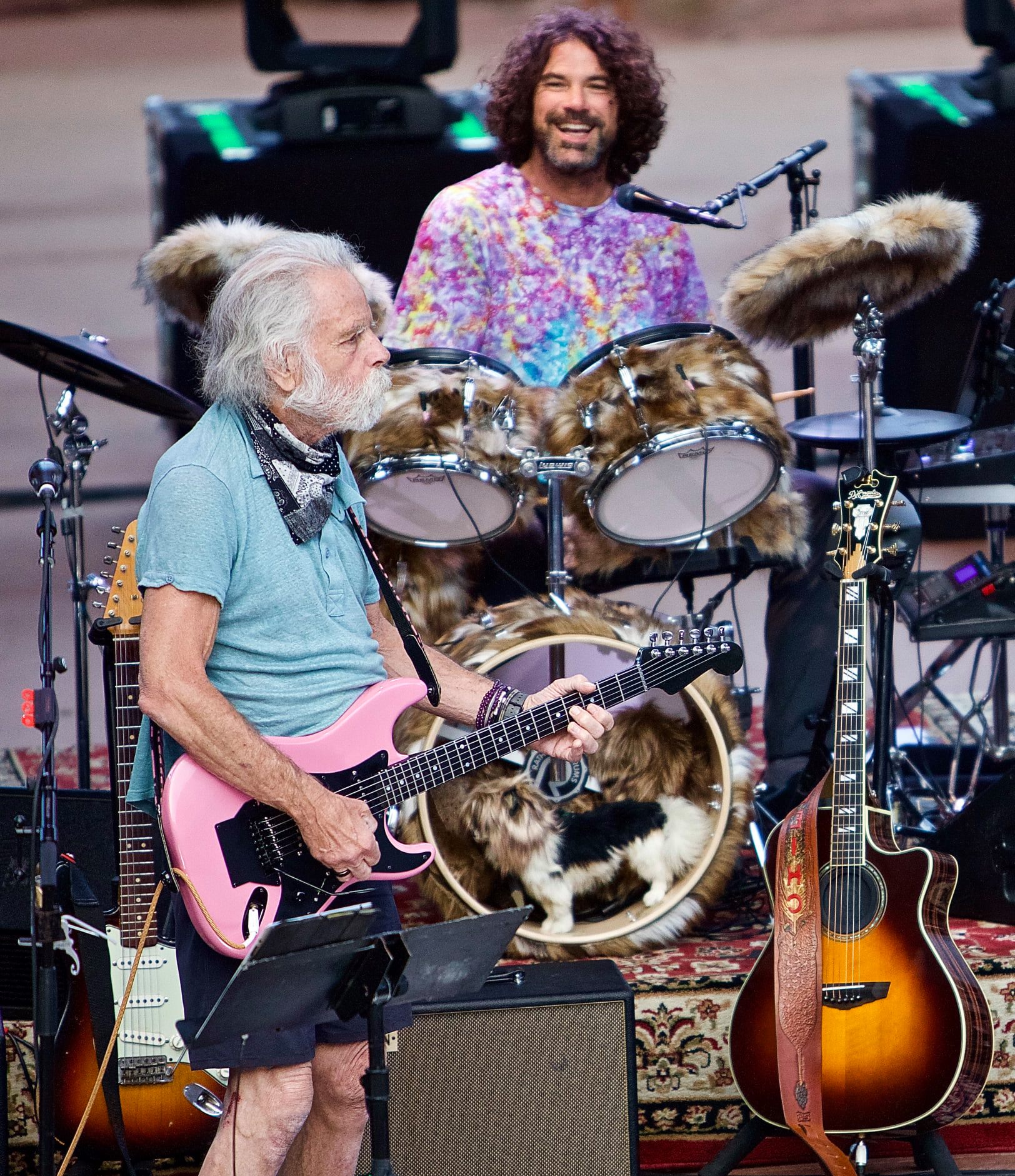
Jay: Yeah, man. I’m trying to drum up some students and stuff here. I had started teaching a number of years ago but never had anybody that kept on with me. People would come by and take two or three lessons and like get all my tips and tricks [chuckles] and that’s it. And I’m like, “Uhh. [laughs] I gotta learn how to string ‘em along a little bit here.”
GW: [laughing] That’s funny because I was going to ask, how being a musician’s transposing into being a teacher, but I think you just answered that.
Jay: Well, you know, everybody’s looking at something different. Like some cats can already play, they’re just looking for maybe a couple of tips and tricks, a couple of things to work on. But I’ve also been really good at giving folks ways to figure out stuff for themselves. Like, if you just start with this, and do this for ten minutes, you’ll automatically challenge yourself with that and the other thing. But I had a few students during the pandemic that stayed on regularly, and it was cool because I had all different kinds. There’s the one guy that can do it. So it’s like, “All right. Hey try this.” He says, “Okay, I can do it.” And he does it one time, and he’s looking at me. It’s like, “No, no, no, dude. [laughs] Keep doing it. Yeah okay, I know you can do it, but keep doing it.” [laughter] Then there’s the other student that’s just playing and playing and playing and not even listening. You know, it’s like, “Uh, can you try this?” And they just go ahead and do what they’re doing.
GW: So you have your own learning curve going down here then.
Jay: Yeah. But I’ve gotten pretty good at it. The thing is, it’s so easy to get caught up in so many different aspects of each instrument. Like there’s this Drumeo thing. I was checking it out. It’s this online thing for drummers and all this. It’s really cool, but it was all—well, I didn’t see anybody on there—I didn’t see much on there—but from what I gathered, it was mostly like chops, and rudimentary kind of exercises and stuff like that. A lot of the videos I saw just perusing were guys playing real flashy stuff. And that’s actually what I wanted when I was a kid. It made me want to play drums, like watching all the flashy, fast playing guys, but I sure could have used some tips and tricks back then on what it might take to keep a gig. You know, advice on like some of the hardest things to do—like how do you listen and play at the same time? I know it sounds so simple but it’s almost the most impossible thing to do.
GW: Oh yeah. I can get that.
Jay: Yeah. To be like absolutely objective and completely pay attention to what everybody else is doing while you’re doing your part too. I mean, it’s interesting.
GW: Would you describe that as giving yourself over to the music?
Jay: Yeah. There you go. Exactly. That’s exactly it.
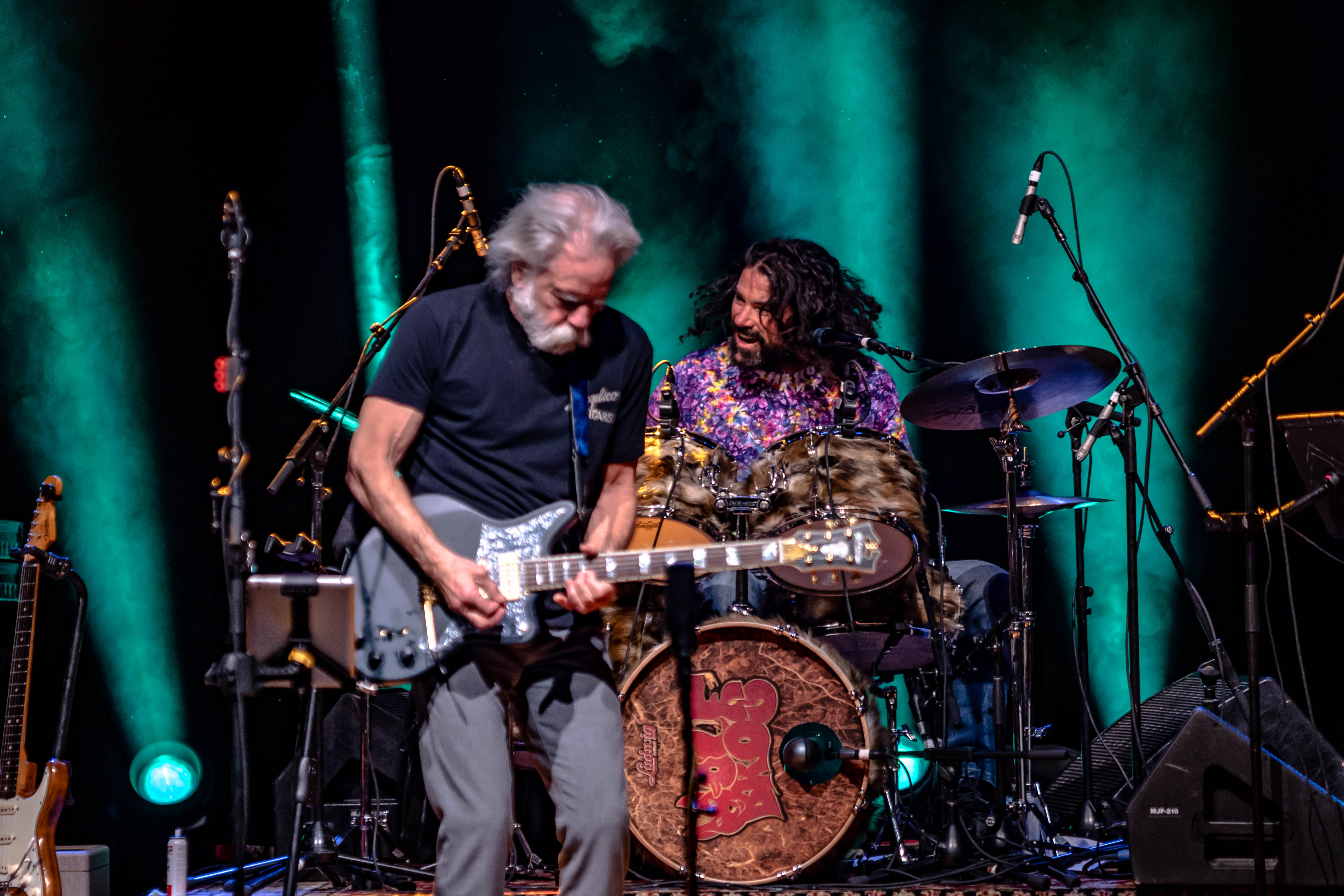
GW: What made you decide to teach. I mean, obviously you’re busy enough. What got you to say, “Hey, I’m going to start teaching lessons”?
Jay: Well, I’ve always kind of liked to pass stuff down. I know that there’s a whole generation out there that’s kind of missing out on a lot. And then with what’s going on with music over the years which has kind of dwindled and diminished from when we used to go buy albums and all that stuff. You’re lucky if you can find somebody’s attention for fifteen seconds with all the videos and whatnot, and social media nowadays. So I’ve always wanted to give back like that. And I found it was easy. It was like, “Oh, you can pick up a couple extra bucks teaching.” And then I was like, “Actually, it’s pretty fun. And easy.” You know?
GW: [laughter] Surprised yourself, huh?
Jay: It feels good to really try to help somebody, especially somebody who’s just starting out think of some different things. Like for instance, why would some drummers grow up and be a left-handed drummer? I could have been a left-handed drummer. I rode a skateboard goofy foot. Like had somebody seen that, maybe they would have said, “Hey, hold on, everybody in Junior High School hold on—this whole class room hold on for a second—we’re going to set up the drums backwards.” You know, you got four kids sitting there waiting to play, but for this kid you’re going to set the drums up backwards. It didn’t happen for me. So I’m saying, to be able to spot that in a young person and be able to adjust it right early on, that’s the thing, man.
GW: So you don’t learn the bad habits right out of the gate.
Jay: Yeah. You never know. You might see somebody, talk to them for awhile, and ask them how do you ride a skateboard, or which hand do you write with, are you left-handed? Oh, well then let’s not make you play a right-handed drum set. Or if you do, you’re playing it already naturally, but you want to try to play open-handed, where you’re playing the high hat and all that with your left hand, the backbeat with your snare hand, with your right hand, you know?
GW: Obviously, to me it’s really cool, like wow, Jay Lane’s making himself available to people. I would think it would be like you, maybe when you were a kid saying, “Hey, Mickey Hart said he’ll teach me drum lessons.”
Jay: Yeah. Yeah, man. I’ve had a few students that were pretty excited because of the Primus stuff. This one guy was in a Primus cover band. He just wanted to make sure he was playing some shit right. He was like, “Hey. Just make sure I got this shit right.” [laughs]
GW: Do you see yourself that way? As being like, the dude.
Jay: [laughs] Well, I mean, I’ve seen other dudes be that dude, you know. Hey, I’m just honored because I’ve been doing it for such long a time I’m just glad I did something that got some notoriety because I was in a lot of things that nobody knows about over the years. And I’m pretty lucky that a few of them did get kind of popular.
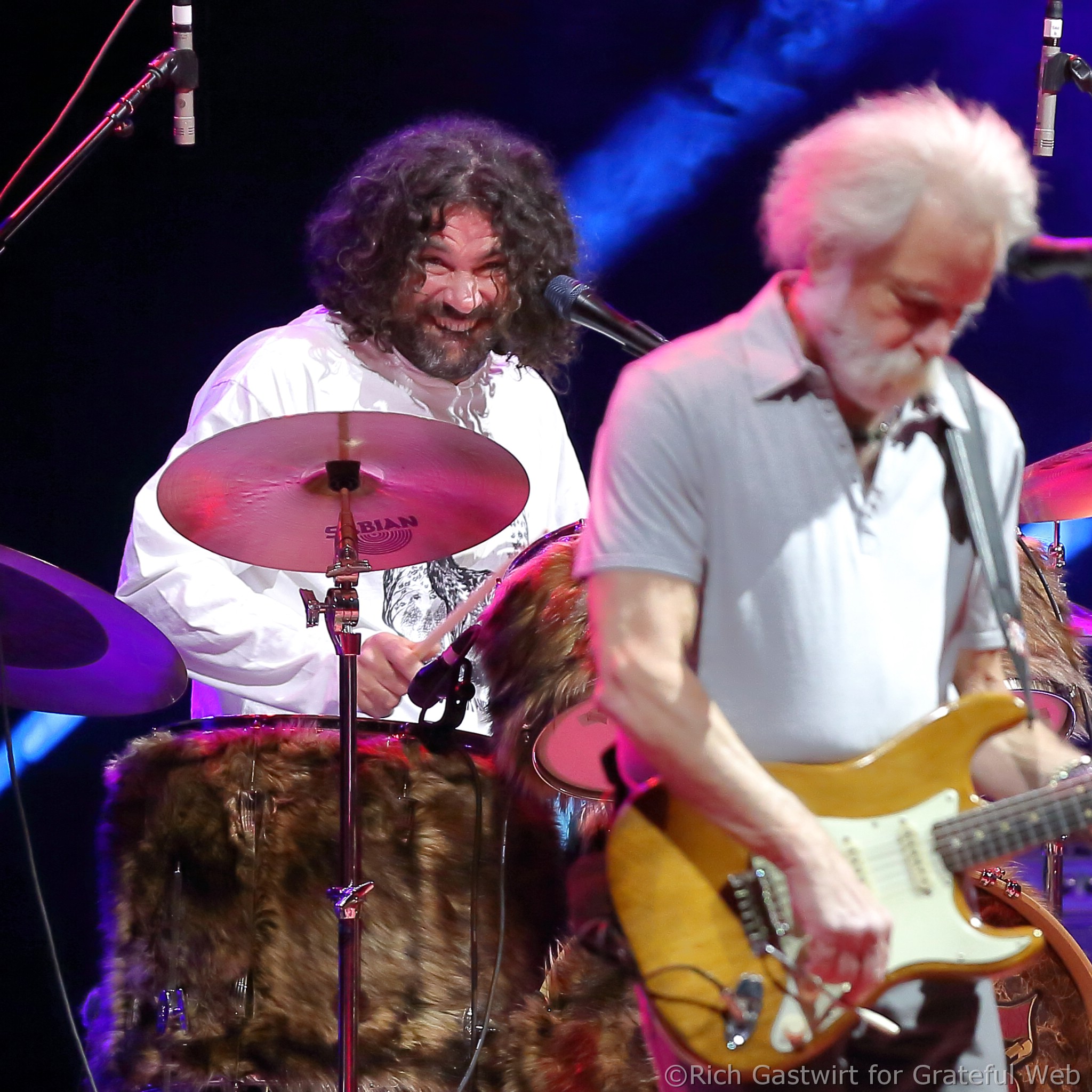
GW: Well, I’d like to bring up the Golden Gate Wingmen then because I thought that was great.
Jay: Yeah, I’m hoping we can do some more gigs with that. It’s tough with everybody’s schedule. And now you got like Reed (Mathis) plays with Billy’s band, and Jeff’s in all those other Dead bands, and I’m with the Wolf Bros. You know, between everybody’s schedule it’s kind of hard to squeeze a gig off. Now John’s playing with Melvin. But that is a really fun, uh—I’m glad you brought that up, man, because that’s a fun and loose gig. Everybody’s real loose, sometimes a little too loose. [laughter]
GW: That’d be really cool to catch some of that again. You’re only three months younger than I am, so we kind of came up through the Dead scene at the same age, and to see all these different guys playing together is just awesome. It makes me feel like the old parking lot days of the Dead. But now everybody’s on stage instead.
Jay: Yeah, man.
GW: To get to see everybody playing with so many people is pretty cool.
Jay: Yeah, it’s been awhile. I was in a lot of bands in the eighties, and then the nineties. It’s cool. I’ve been able to bring some cats aboard, like, I have Jeff Chimenti on this gig through Dave Ellis, this saxophone player that used to be in RatDog years ago.
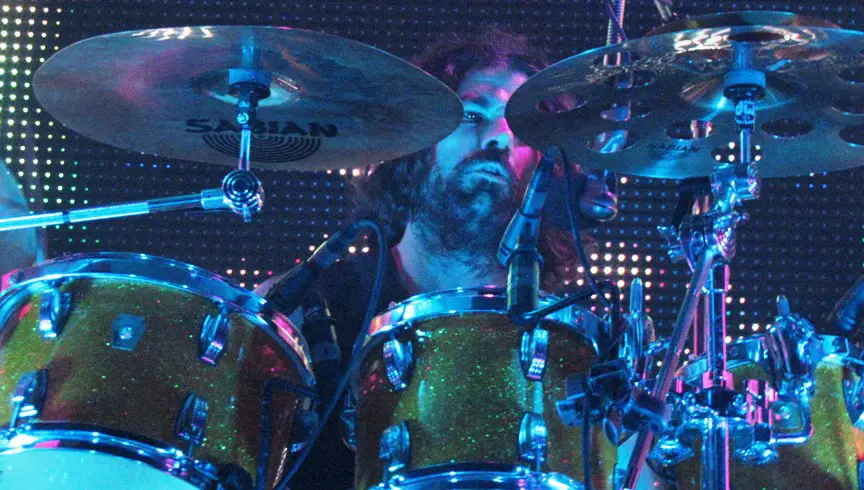
GW: It’s nice to see musicians open their doors to other players. I think it often goes back to the early days of inspiration. Like you had these certain people that inspired you to music and now here you are trying to return that favor. I hear so many people say, “Oh, I wish I had learned to play an instrument,” but never did.” And then there’s the other guy where music just took him. What’s that thing that triggered it for you, where music just became this thing to you where other people don’t quite get grabbed that way?
Jay: It’s interesting, man, because I’ve seen a lot of people, even some of the most talented friends I have, not choose music as a way of life. In fact, the most talented guys I know actually chose not to go on the road when the opportunity was there for them. And actually, two guys I speak of could be because their father was a professional musician and they may have seen some rough stuff growing up. So they might have had that built-in thing where they felt like they needed to have a nine-to-five job, and music is just a very personal thing that we do after hours. But it was something they’d never give up their serious life for. You’ve got to have some kind of retirement—A lot of people think that way—where it’s time to start growing up and moving out and all that.
GW: [laughs] Time to grow up.
Jay: What’s that?
GW: I’m just laughing about that because I’m still waiting to see what I’m going to be when I grow up.
Jay: [chuckles] Oh, I know, man. The funny thing is, I hate to say it, but sometimes I get a little envious because those buddies of mine who are able to go to their jobs and be all serious and strain all day—then, ding, ding, ding—the five o’clock bell rings and they’re getting fucked up and having the time of their lives and are having almost more fun than I’m having being all serious and sober at the gig. I gotta be all sober at the gig, be cool because it’s a pro gig, and these guys are just having a blast playing in their garage and shit. I’m kind of jealous actually, man. [laughter] The grass is greener, you know?
GW: [laughs] I have that problem when I’m covering a venue. Like I go to do a review for a show or something like that, and you’re all trying to be the professional so you’re not really letting loose like you would if you were just going to a show.
Jay: Exactly, man.
GW: It takes a little something away.
Jay: Yeah. [laughter]
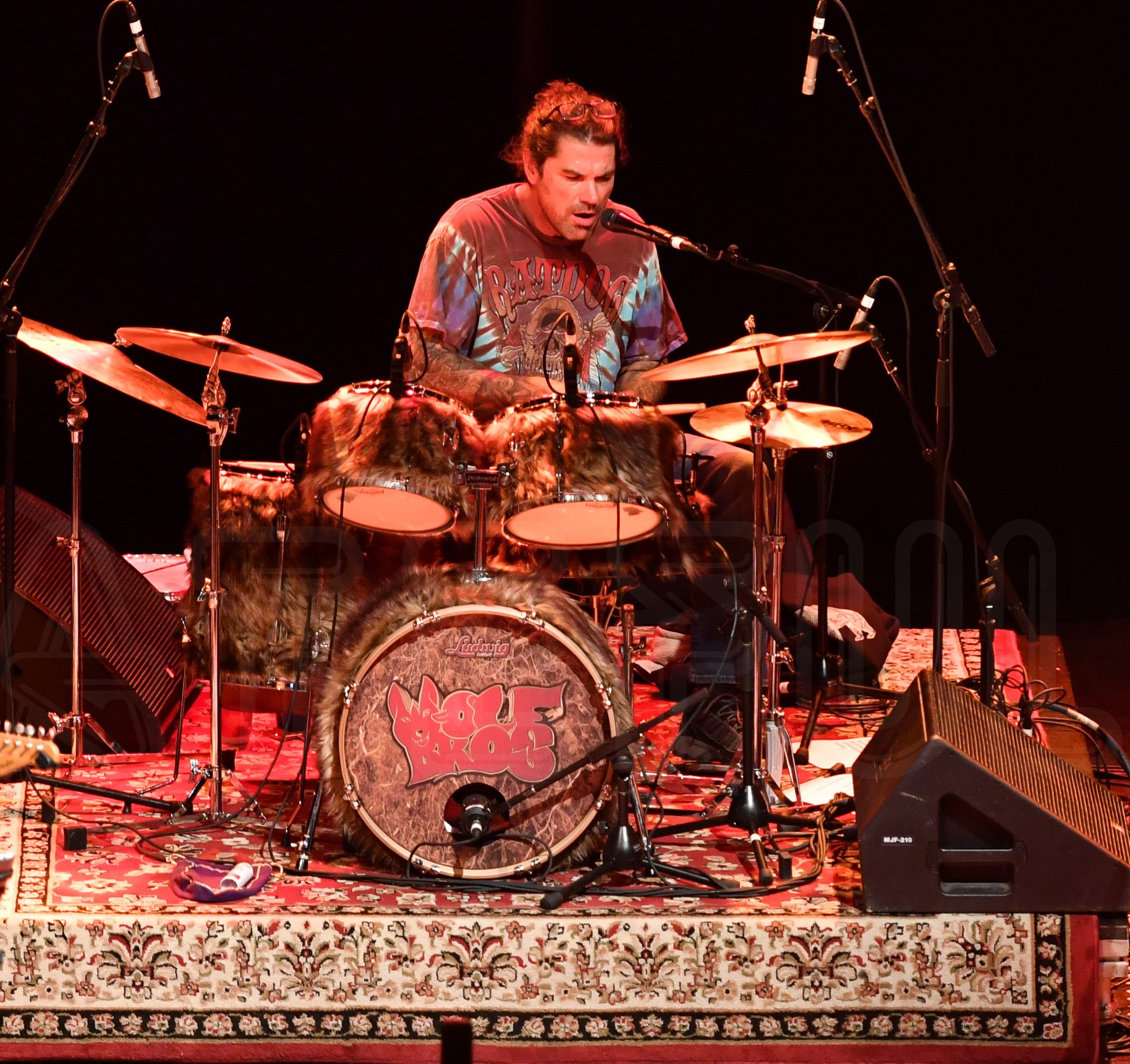
GW: Well it’s kind of cool that you got to go back to Blue Bear. I mean, you were there . . . How old were you when you went to Blue Bear?
Jay: Man, I was trying to remember that. I think, let’s see, I was nine-years-old when I started taking lessons from a friend of Steve Savage’s named, Bob Rose. I think I took lessons from him for about a year, maybe two years. That would have been like, eleven, or twelve. And he recommended me right away to Steve. And this is when Steve was just starting up Blue Bear and they were out on Ocean Avenue in San Francisco in the store front. I remember going down there for the first time. And uh—two things—I had a private drum lesson and I was also in ensemble. They had little ensembles. They had people together. I wanted to talk about that, man, because that’s part of the reason why I really want to help promote Blue Bear. Just remembering being a kid and going into a rehearsal space where it didn’t smell like your house. It didn’t smell like your garage. It smelled different. It’s like, the smell of it. You know what I mean? It’s a rehearsal space. This is where you sit there and practice and make music, man.
GW: [laughs]
Jay: You know what I mean. Now later on they had the cork everywhere. Everywhere there was cork on the walls where the room smelled like cork. But I remember way back before, when they were out on Ocean Avenue, there was something about the smell of that room. I don’t know, maybe it was a little musty, something. I don’t know what it was, man, but something about the smell of that room makes you want to be in rehearsal rooms for the rest of your life. And it really took, man. I have a friend that also grew up in San Francisco, a guy named Dave Shul, a guitar player, used to be a Spearhead. We’ve been friends for years and we still share a rehearsal spot here right now. And even though we don’t play together—he does his projects here, I do mine—but there’s something about having a rehearsal space that keeps you young-at-mind about music. Like man, we’re going to do it. We’re in a rehearsal space. [chuckles]
GW: [laughs]
Jay: You gotta have that rehearsal space. Somewhere where we can go get loud and nobody’s complaining. I have my shit set up at home too but I can’t make any noise at home. I gotta put on headphones, you know, it’s like, bleh, at home. [chuckles]
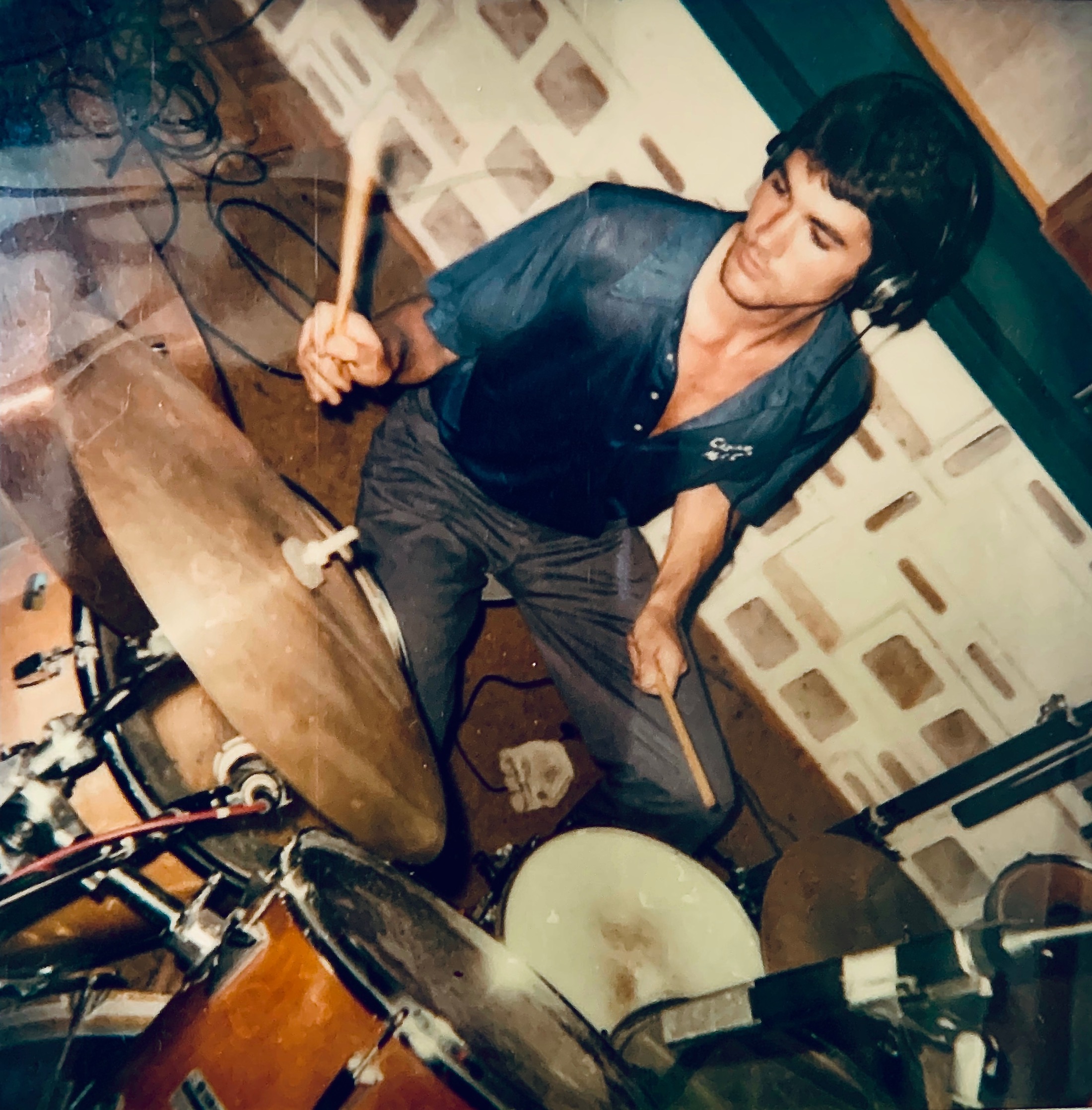
GW: When I bought my son his electric guitar and amp, I built him a treehouse first so he could play it over there. I didn’t want to have to listen to someone learn how to play really loudly.
Jay: [laughs] That was really smart, man. Wow, you were thinking.
GW: I’ve been around musicians long enough to know that was going to be loud.
Jay: That’s a big job. A fuckin’ treehouse. That was a pretty big job.
GW: I wasn’t going to listen to him learn with a loud amp, you know?
Jay: Yeah. Wow, you put him up in a tree, man. [chuckles] Wow.
GW: Is Steve Savage still around?
Jay: He’s still around. He just emailed me about these interviews. He was thanking me for doing them and stuff. I think I’ve seen him in the last year or two.
GW: That’s good to hear. Blue Bear does several outreach programs looking to help kids get into music at a young age as well as help the underprivileged have greater access. Blue Bear does a lot of cool stuff.
Jay: Yeah, they do. I’m not sure of all of what they do, but I’m glad to hear that.
GW: Do you teach children? Do you teach any and all comers? Or do you have a preference?
Jay: Oh man, anybody! I take all students. All kinds. Young and old. Yeah. I’m pretty good at just trying to figure out what they’re doing with the drums. You want to learn about drums? You want to learn about only drums? Do you want to learn about how the drums play music with other instruments? I got a studio, I can jam along with other instruments. I play bass guitar and keyboards, as well as singing. You know, all aspects of music, really, production. I still use tape. [chuckles] I have a reel-to-reel tape machine.
GW: Nice.
Jay: Yeah. I’m still into that stuff. I have the new stuff too, but the old stuff as well.
GW: Yeah, those reel-to-reels put out the sound back in the day.
Jay: Yeah, man. It’s like—well sometimes I want to make music without looking at the screen. Now everything’s a screen all the time. It’s like, “Yeah, I don’t know if I want to look at the screen.” I used to sit there and press buttons and look at levels and just play good music. And now, okay, let’s go on the screen. It’s, you know, bleh.
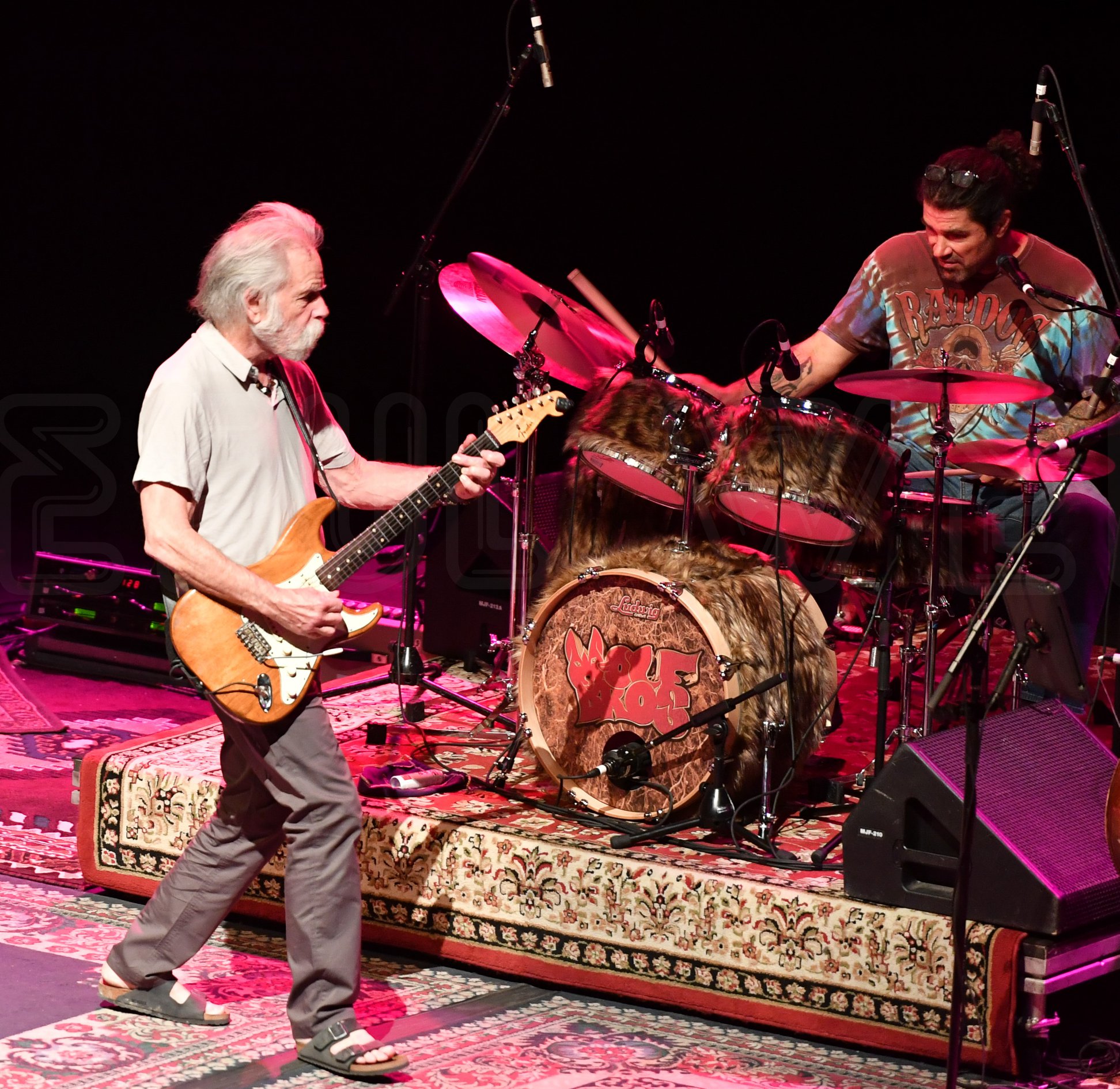
GW: You’ve played quite a few different styles of music in playing with all the different people you’ve played with, yet originally you were inspired by jazz.
Jay: Yeah. So I grew up in San Francisco—so it was a lot of jazz and funk. I listened to Tower of Power, Earth, Wind & Fire, George Clinton, Prince, a lot of R & B and jazz. Weather Report. I wasn’t into the Grateful Dead so much until later. Growing up in the city I was more into R & B and jazz stuff. I used to be in a band called the Freaky Executives back in the eighties, early eighties, as well as a band called The Uptones, a Ska band. But the Freaky Executives were like an eight-piece funk band from East Bay.
GW: That probably helped you with the jam-band style, all that jazzy stuff?
Jay: Oh man, yeah. When I get to go into these other settings, I have other stuff to draw from. Your reference. When I go into playing the Grateful Dead I can reference what they’re referencing as far as the older R & B stuff. Bo Diddley and all that whatnot.
GW: There you go. Bo Diddley.
Jay: There’s a lot of people that just think, “Oh, yeah. Not Fade Away.” No, that’s Bo Diddley. So, it’s like knowing the roots of that stuff. Bobby Blue Bland.
GW: Obviously you and Weir got along really well with the RatDog scene and that kind of took off for you.
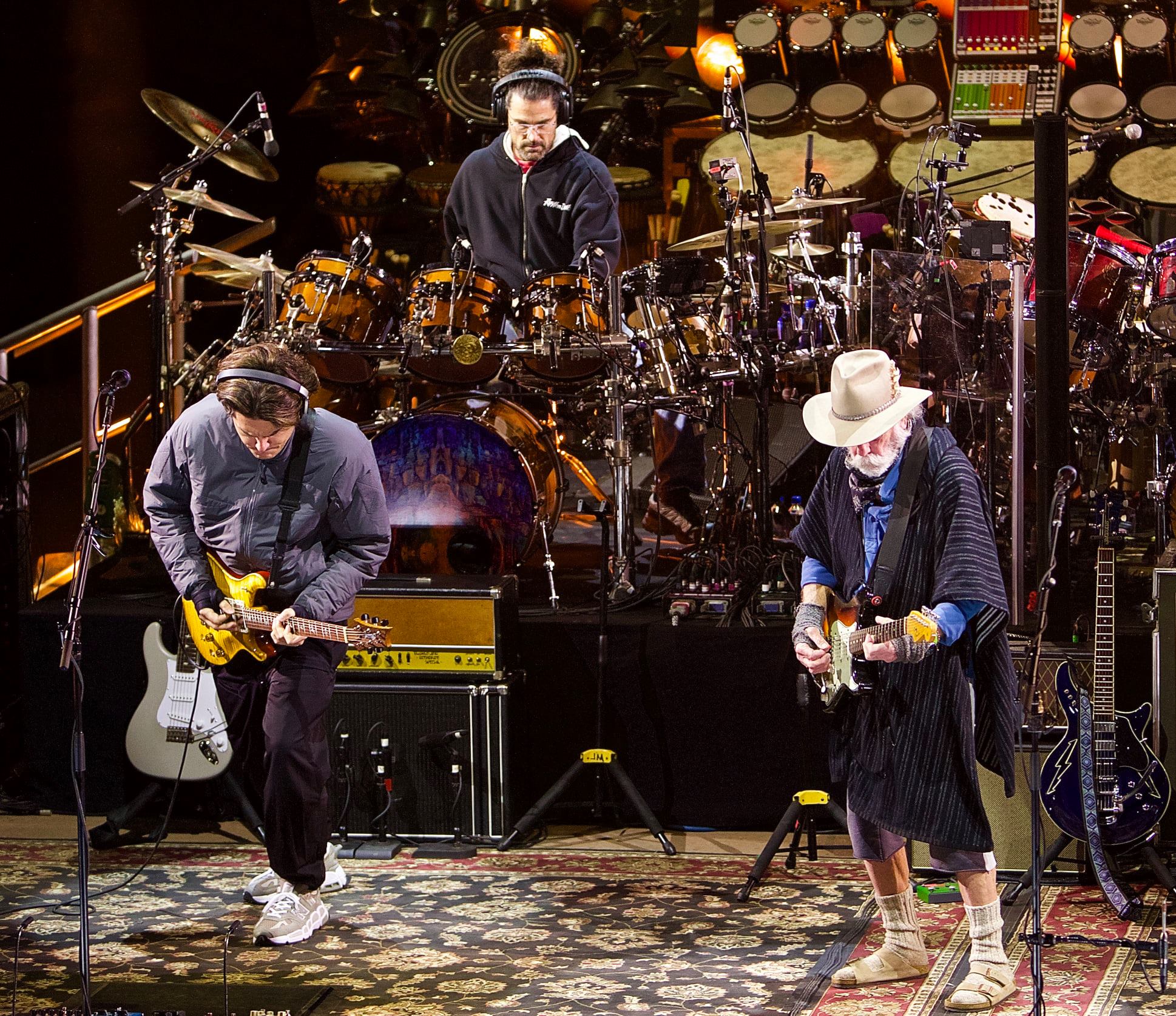
Jay: Yeah. He’s a very rhythmic player, man. So I think he really locks into people that play rhythm—and jam along and play rhythm—not just float above the music. That’s all you can basically do on the drums, play rhythm. I mean, it’s not all you can do, but it’s kind of the main thing that you do do, pump out rhythms. So yeah, we’ve learned to play along in synch. He’s learned to slow me down over the years, man I’m telling you.
GW: [laughter] Well yeah. I think about some of your Primus jams and then some of your Bob Weir stuff.
Jay: Yeah. I definitely had to rethink how I was approaching some of his stuff. I really had to relax and learn to play at different tempos. I didn’t have that experience. In the eighties everything was super up-tempo. Everything was up. Everything was up. And then when I started playing with Bob, these were like—I never played anything below a hundred bpms ever, you know? [chuckles] That was the slow songs.
GW: That’s funny. With the Wolf Brothers also—I’m sorry, but I have to comment—the mix is amazing. I don’t know how you guys are mixing but the balance is just phenomenal. Nobody stands out—you have to really hunt each person down—yet the way it all comes across as a whole just draws you into the music.
Jay: Yeah. We have the best guys mixing the stuff. Man, it’s really cool.
GW: It definitely comes across.
Jay: And now we got the new thing. We’re going to be doing a symphony thing. It actually got postponed. It was supposed to be this month but now it got postponed to October. That’ll be interesting. It’ll be at the Kennedy Center with an orchestra, some philharmonic from that area. The National Symphony Orchestra. Yeah, it’s like Grateful Dead songs. Twenty so far that’s been written with symphony music.
GW: Wow! That’s a show to catch.
Jay: It’s concerto.
GW: That’s going to be a treat to those fortunate enough to get tickets.
Jay: Yeah. That’ll be something to write home about. It’s an interesting project.
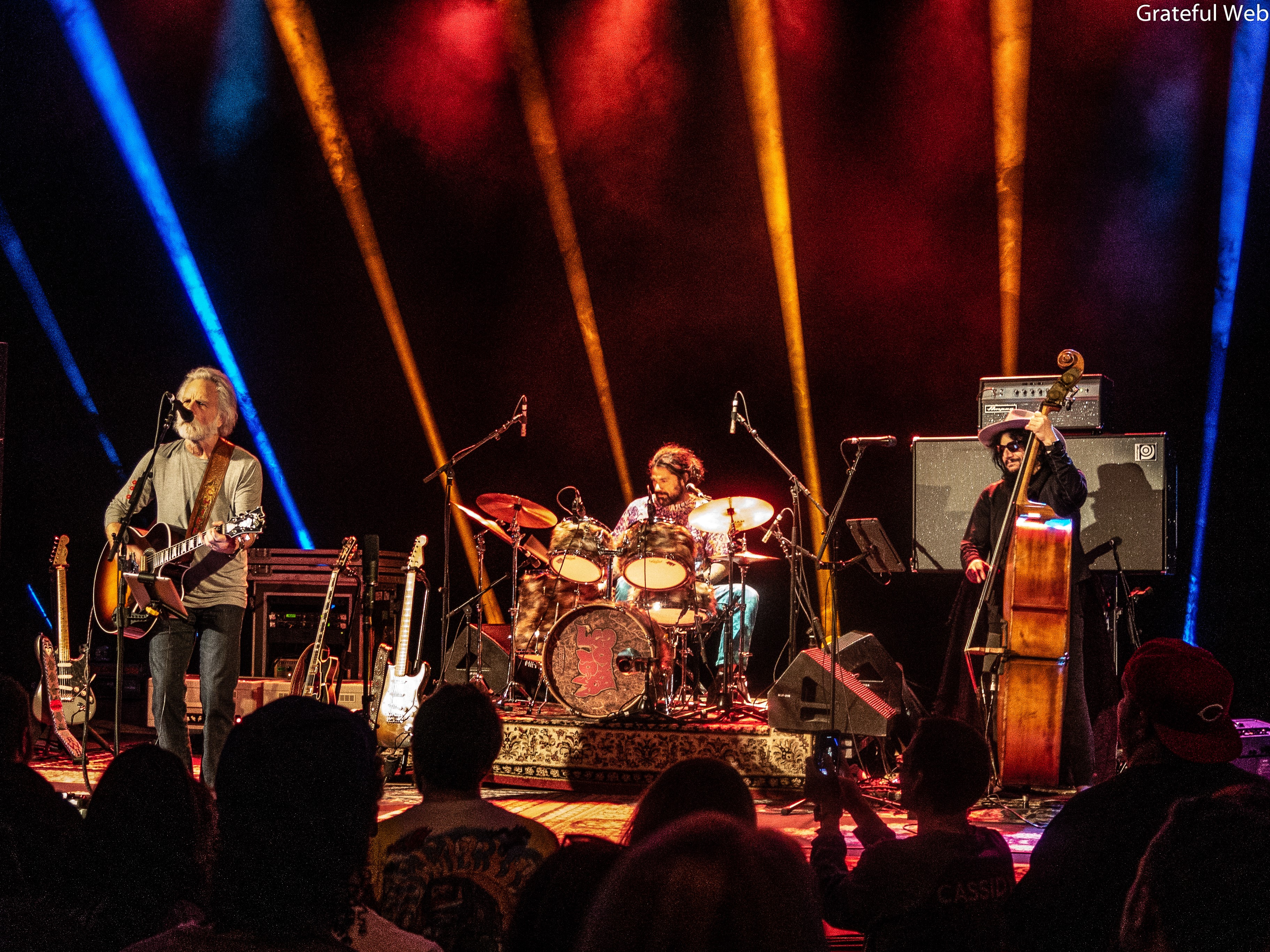
GW: It’s kind of funny, because I’ve been living out in the remote wilds of Alaska, several hundred miles off the road. We came down to the lower 48 this winter to help out family and explore the world a bit.
Jay: Oh wow. That’s cool, man.
GW: We haven’t been out of the woods in several decades, and I have an eighteen-year-old son who’s never been out of the woods. So we come down, and the first thing I see is the Wolf Brothers playing in Chattanooga, Tennessee. And I’m like, “Oh, man.” So I grab tickets for that day one.
Jay: Oh good. That’s coming up, right?
GW: Yeah. It’s March 25th. So I’ll be there watching you. And the Tivoli Theatre is awesome! It’s a hundred-years-old, fits like fifteen-hundred people in it. Great architecture.
Jay: Oh, cool. Is this interview for that show?
GW: No, I was just going for personal reasons, but I might grab some photo passes and see about walking around and taking some pictures of you guys. Maybe review the show if so inspired.
Jay: Oh, great man. Good, good, good. I’m looking forward to it. I usually come out and mingle amongst the crowd.
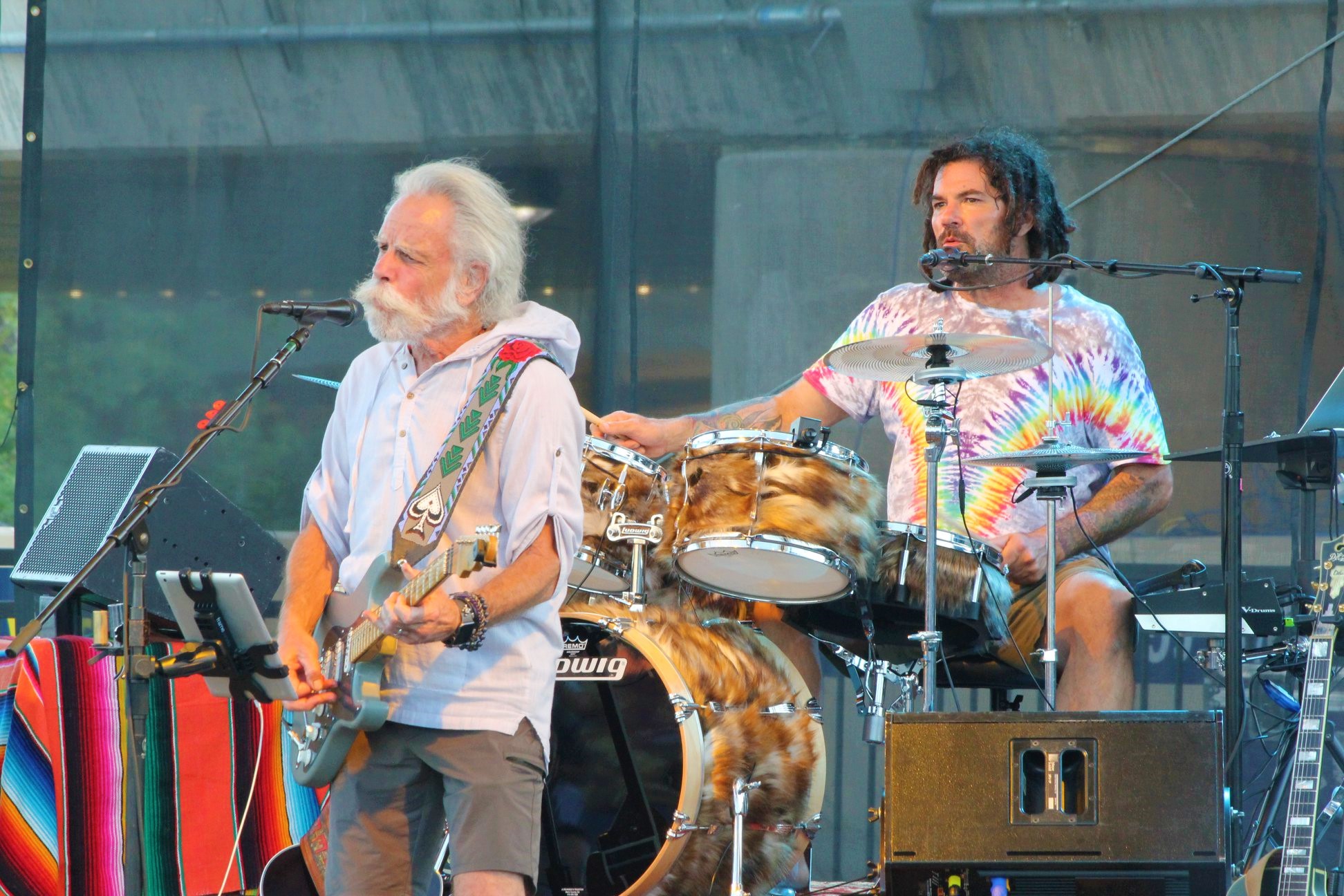
GW: It’d be great to get a chance to chat with you in person. I haven’t been to a show in forever. Last time I was on tour was in ’89 with the Dead, then I went to Alaska and went out into the woods. So this is my first show in decades.
Jay: Oh wow.
GW: I’ve been able to stay connected to music by writing for Grateful Web. With modern technology I’ve been able to interview some great people like Mickey Hart, Jorma, George Porter, Keller over the internet. I’ve been following you all along a little bit as well. Like I said, beside RatDog and the Wolf Brothers, the Wingmen got me. You actually—well, you were with Primus when they came to Fairbanks. 2013 maybe.
Jay: Yeah. I was still on the gig in thirteen. Yeah, that was me.
GW: It was the Blue Loon, outside in Fairbanks under the midnight sun.
Jay: Yeah. That was amazing! What an experience. I ended up hanging with some locals up there too, man. It was pretty cool.
GW: Fairbanks has the good locals, that’s for sure.
Jay: Yeah, man.
GW: [laughs] Yeah, you know what I’m talking about.
Jay: Oh yeah. They’re fucking wild.
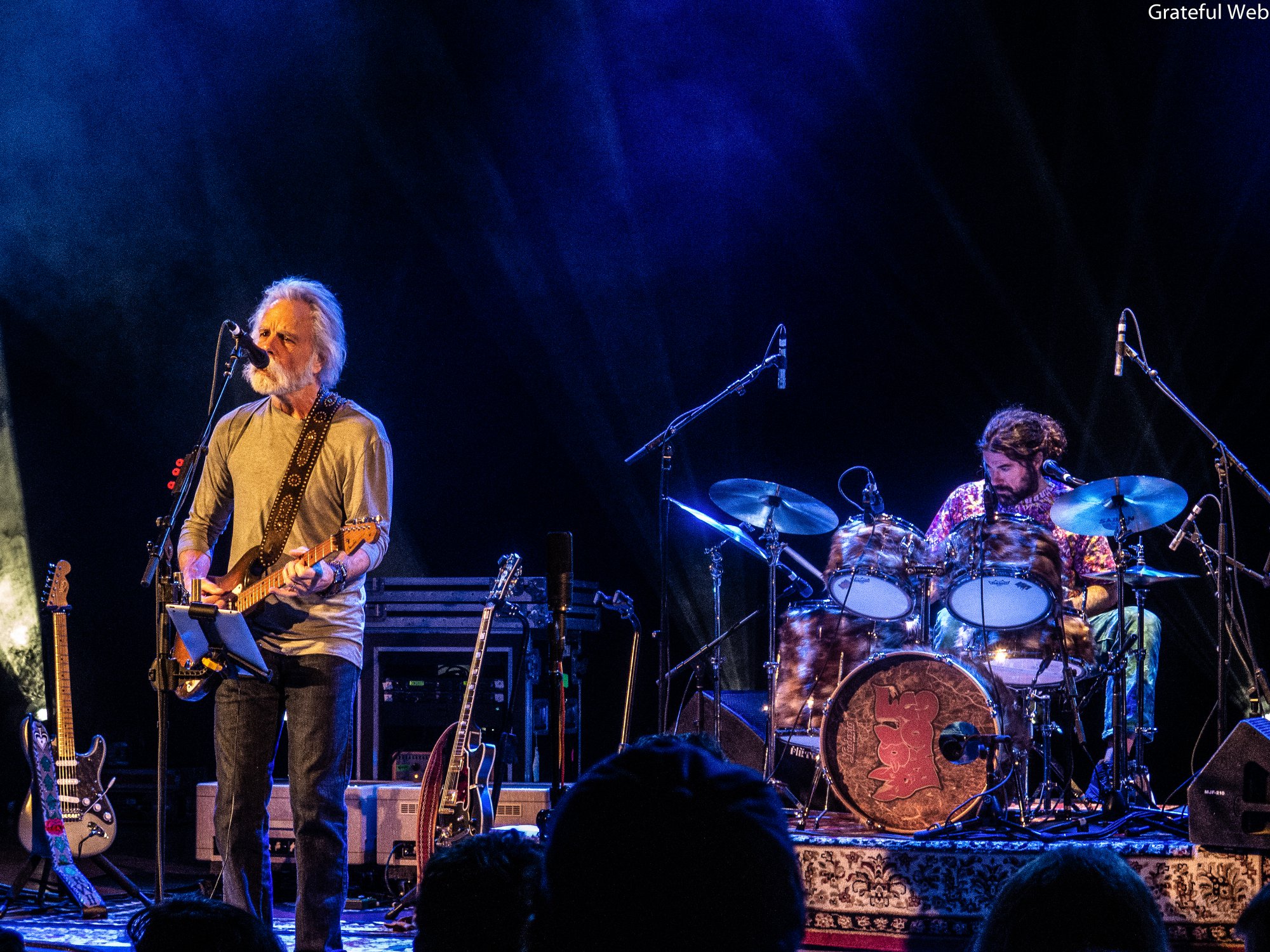
GW: So how do you balance play and lessons? Do you give lessons in person? Or is it all Zoom?
Jay: Yeah, I do give lessons in person, but so far during the pandemic nobody’s signed up for that. But yeah, I do offer that as well. I have a studio here in San Francisco.
GW: And then when you’re gigging, how do you balance the lessons with being on the road?
Jay: I haven’t gigged much for the last couple of years so that hasn’t been a problem yet. But I’m hoping it will be a problem. [chuckles] I have to figure that out. I could probably, if it was a Zoom, I could definitely do it from the road if it was in the middle of the day. Just go off my drum set at the gig, squeeze out a lesson on the phone or something if I had service.
GW: So you don’t know how you’re going to balance that yet. [chuckles]
Jay: Uh no. We’ll see. We’ll see what people are ready to do. But actually right now, I don’t have any students. I’m waiting for some folks to sign up.
GW: That surprises me. I can’t imagine that you wouldn’t have any students. I think, “Jay Lane is offering lessons,” and suddenly I’m ready to learn drums.
Jay: Yeah man. I’ve had a few—actually I have one guy I’m giving a lesson to tomorrow. That’s wrong see, he’s a new student and this is his first lesson. That’ll be cool. I think he’s going to be taking every couple other weeks too. So that’s kind of working out.
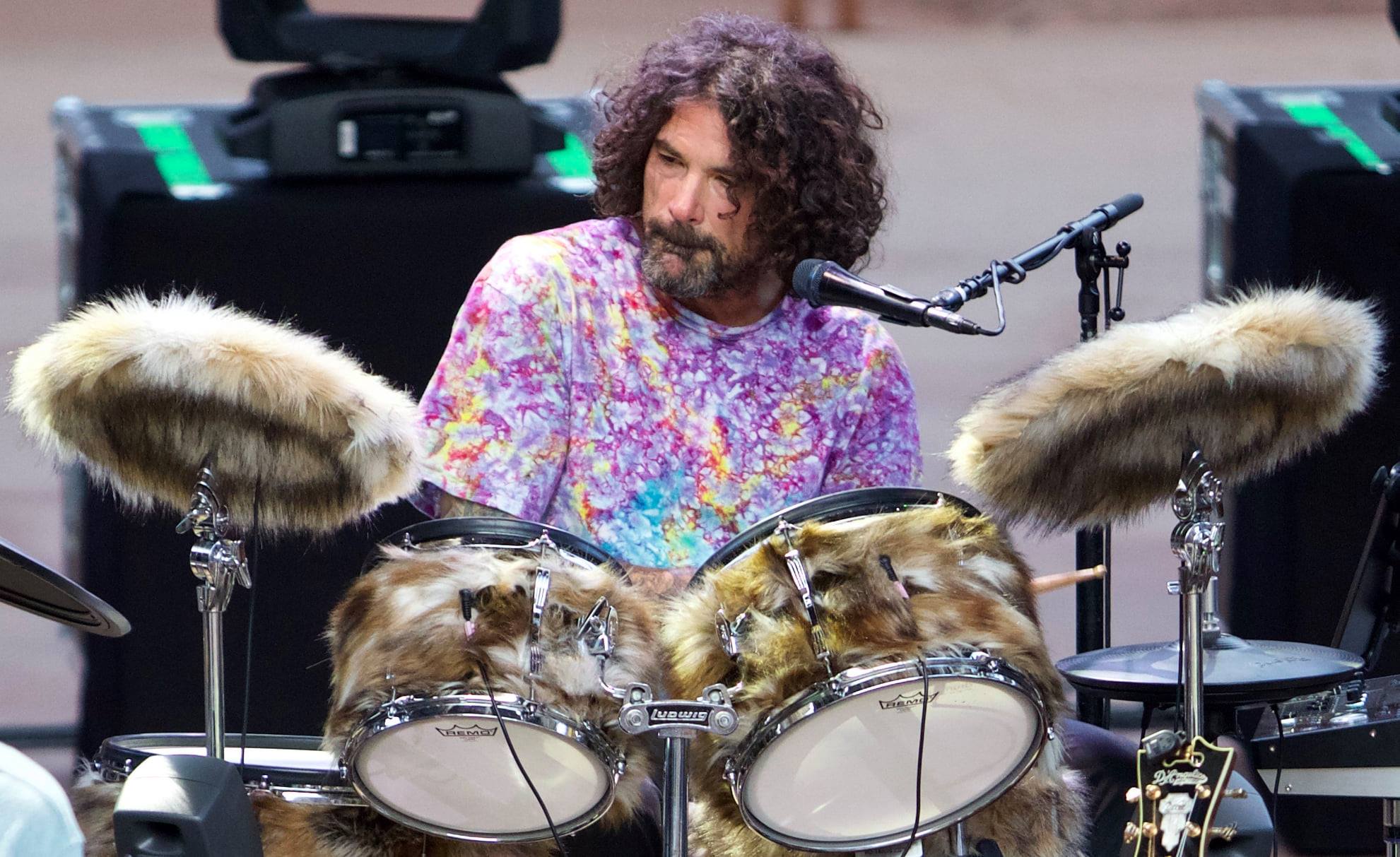
GW: How much do you charge for a lesson?
Jay: Well, right now, I think it’s, uh, I’m not sure how much they have me signed up for. Probably around a hundred bucks a lesson.
GW: That’s not bad, especially when you think that you’re getting a lesson from Jay Lane.
Jay: I try to give them a nice thorough lesson. I don’t cut ‘em off at like any particular time.
GW: It sounds like such a great opportunity. I look forward to letting people know that you’re making yourself available like this.
Jay: I give a nice thorough lesson each time. I give enough time for each thing. For each thing I give somebody, for each new coordination, I give ‘em a second to play it over and over to get it burned in a little bit.
GW: And I’m sure it takes a second to get started too.
Jay: Yeah, like I said, I had that one student, he would just do that stuff one time and I’d be like, “I know you can read the music that I’m writing out, and just doing it one time, but you gotta do it a few times.” You know, get it in there.
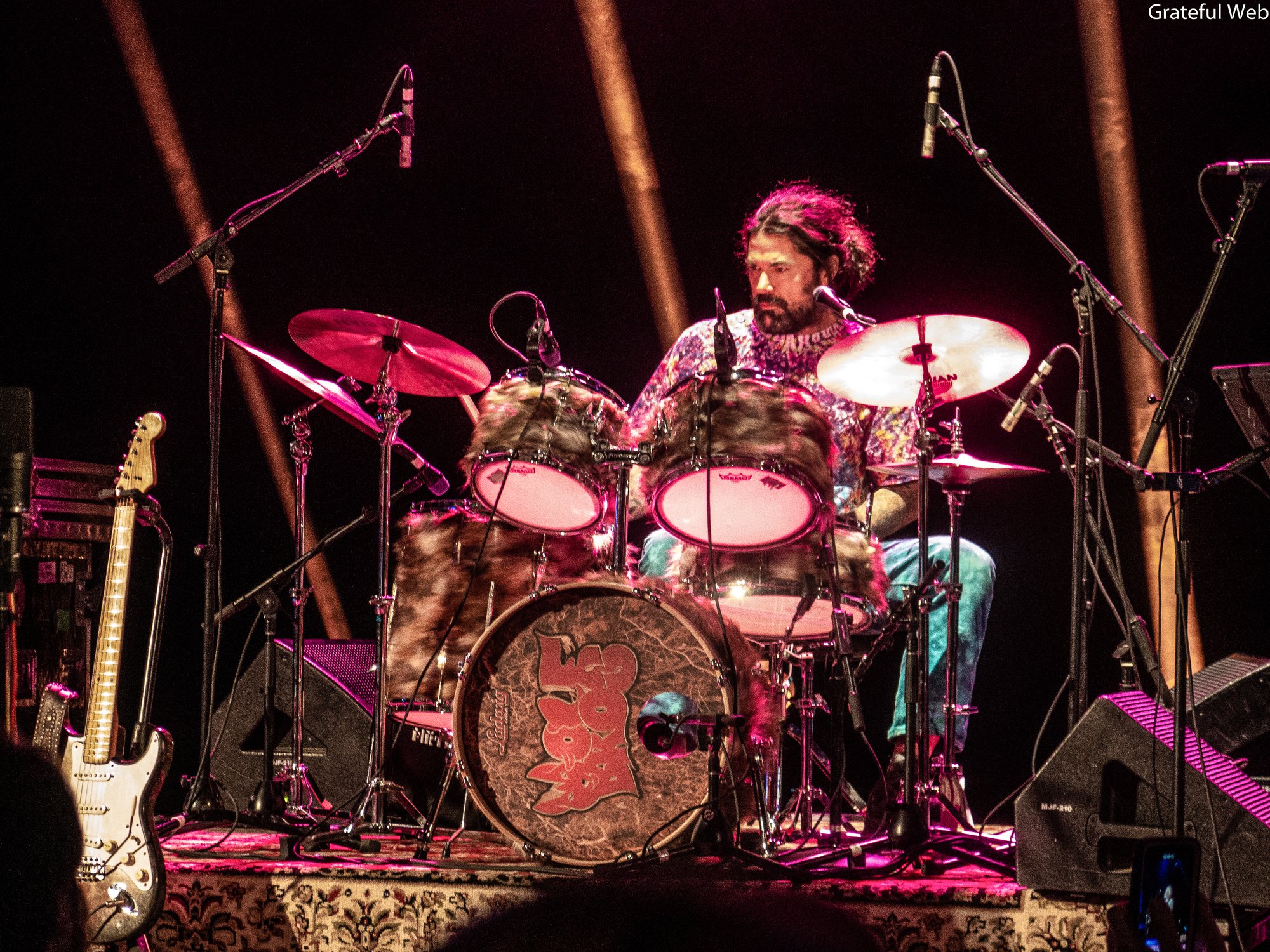
GW: Right. Right. So how does it happen when you’re rehearsing with Wolf Brothers and stuff? How much rehearsal do you guys do? And do you do it in person, or by Zoom? How do you guys do that?
Jay: Well, we’ve been testing, always taking a test when we go up to Bob Weir’s studio. Yeah, everybody takes a PCR test, and we’ve all been vaccinated and whatnot, so we’ve been able to go up there and rehearse and stuff. But yeah, right at first, at the beginning of the pandemic we were trying to do it online—trying to break new grounds, boundaries, with the latency that occurs when you try to jam over the internet. We actually had it pretty good using a thing called JackTrip. It’s a Stanford developed internet protocol for low latency online music playing together—because that can be really frustrating over a Zoom or anything like that, it doesn’t really work.
GW: I’m sure, with people cutting out in just trying to talk to somebody, much less play music.
Jay: It’s just not at the same time. There’s a delay. But Bob’s been really at the forefront of trying to figure out different ways of getting the internet high speed. He’s got this friend that got us all on this sort of server or something like that so somehow it really gets the latency down. So we’re hearing stuff with the least amount of delay. Even though there was still a delay, it was manageable.
GW: That’s funny for you since you don’t want to look at screens yet you’re all high tech on how to practice.
Jay: Right. I know. That’s the reason, because that’s all that I do. You know, when you’re making music and whatnot, that’s the thing. You have to use this shit now. You gotta use computers and all that now. Yeah man. I remember when I started looking at computers and all that I didn’t have to wear glasses, and now I wear number threes or something like that. [laughter] My prescription is just going up and up.
GW: Right.
Jay: I remember when I was like, let’s look at some buttons, some knobs, you know. [chuckles]
GW: And now you’ll be wearing coke bottles before long.
Jay: Yeah, exactly.
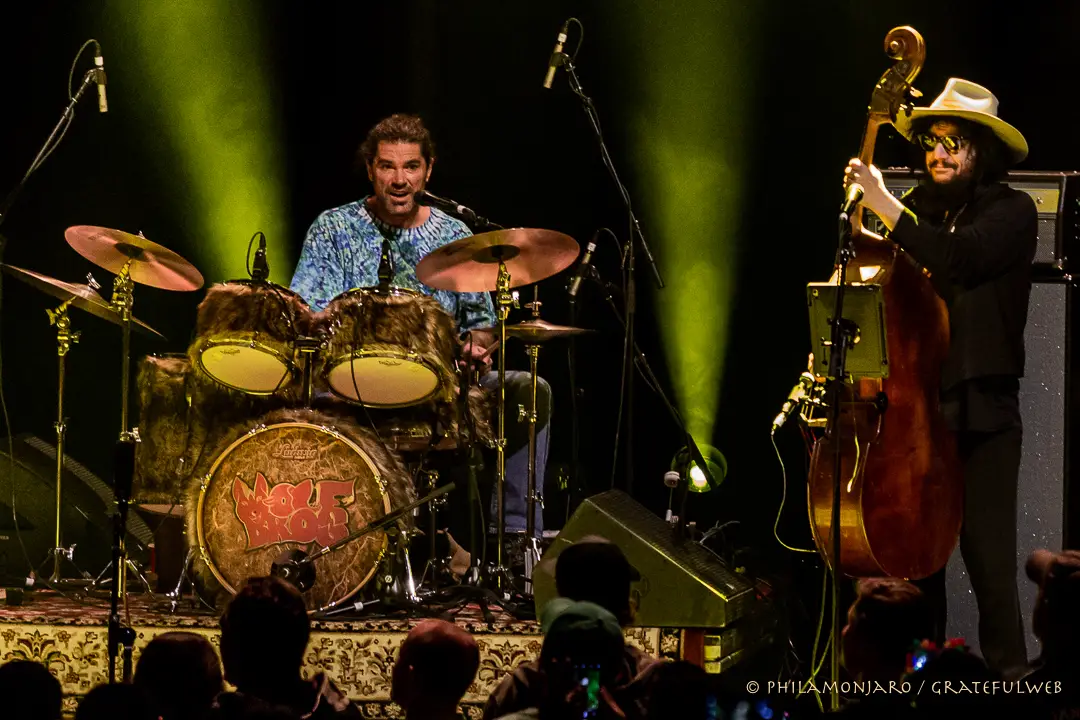
GW: I did catch a couple of your Zoom Concerts with the Wolf Brothers and that seemed kind of fun. You had all the screens of the people in front of you.
Jay: Yeah. That was really cool!
GW: That almost seemed more personal because the crowd was right there.
Jay: Yeah. That was the first thing that felt normal again. They had these big TVs, they had pictures of everybody up there. Yeah, that was cool. But then we started doing real gigs, so hopefully these real gigs will be happening. I think it’s all going to be happening again.
GW: I was getting pretty nervous when Omicron came through. I’m like, “Don’t cancel my show, man!”
Jay: Yeah, and the Dead & Co got cancelled in Mexico.
GW: It’s been a tough couple of years for music.
Jay: Yeah, man. I’m dying to get out there again. In fact, I’m almost like, it seemed like a dream, like did that really happen? Was I really playing music on the road? I guess so. It seemed another dimension or something like that, like it never happened. It was a dream or something.
GW: [laughter] Was I sleeping? Or what?
Jay: Yeah.
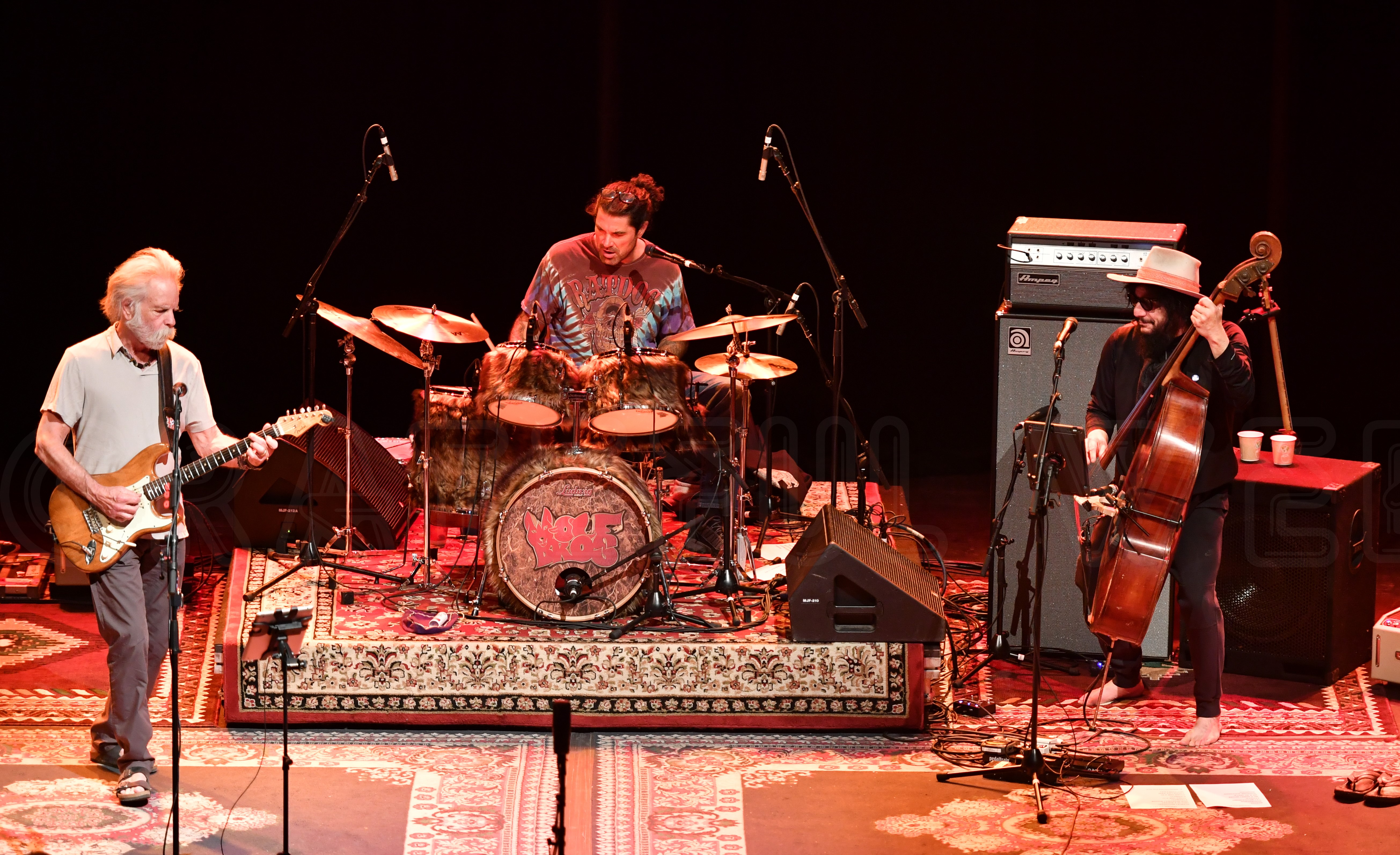
GW: Do you really like being on the road?
Jay: Oh, man, I was born for it. There’s nothing like it. And Bob loves it too. Bob and Mickey, they both love the road a lot, being on the bus.
GW: Well, Bob has a hell of a nice bus.
Jay: Nice bus. Plus, the nice thing is that you get into this thing where you leave after the gig. So, you can’t really hang out and go to too many after-parties and get all fucked up and then be sitting in a van all with a headache the next day on the way to the gig. It’s great! You leave after the gig, you’re on the bus, you’re not really drinking or something, you’re not smoking pot or whatever. You play some video games, watch some movies and go to sleep. There’s a bunk for you. You sleep in, wake up, and you’re in the next town. There’s nothin’ like it.
GW: That’s a whole different game from back in the day.
Jay: Yeah. Yeah, man.
GW: You can tell you’re getting old. You’re drinking smoothies now instead of beer.
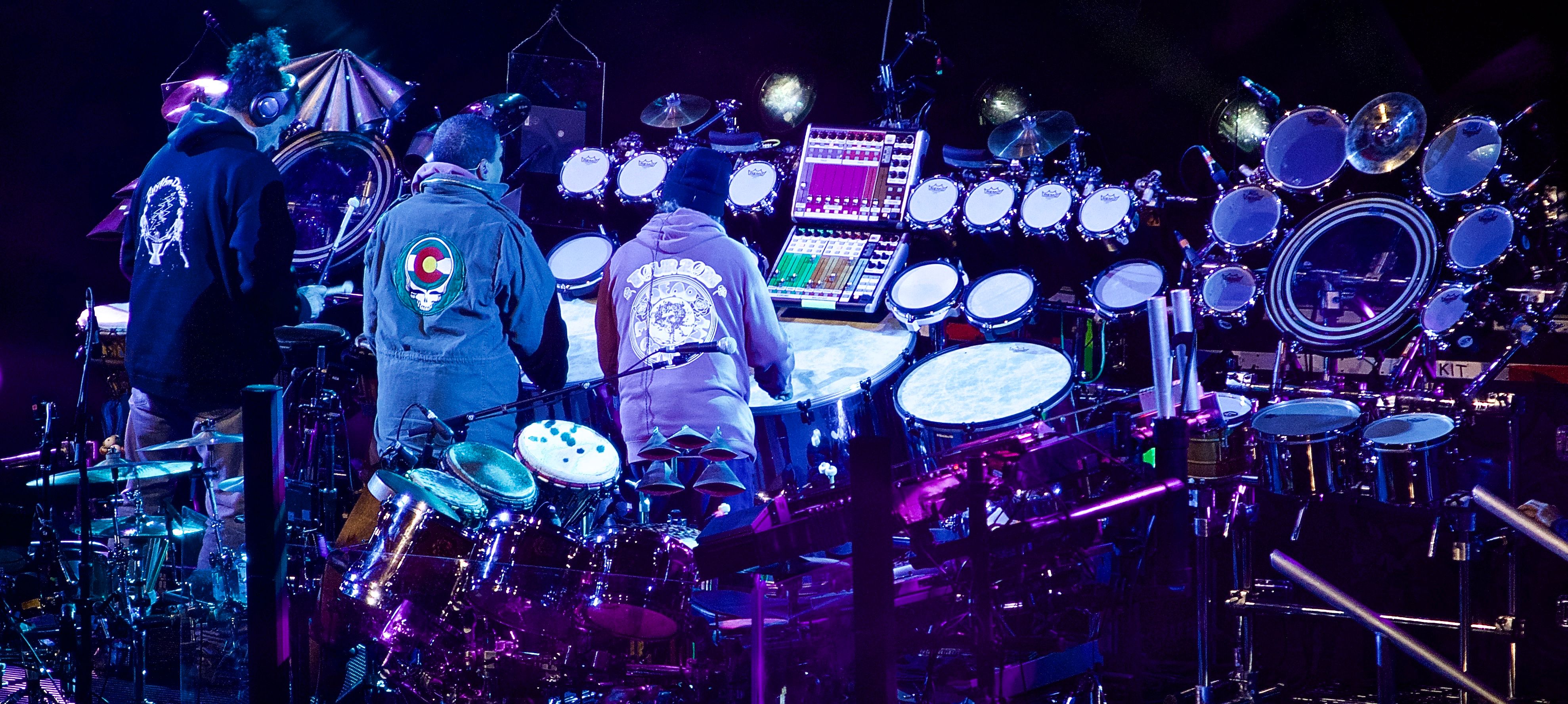
Jay: [laughter] I know. Exactly. Yeah man, I’m up in the mornings. I’m up early, drinking coffee and all that.
GW: Did you ever like playing under the influence? Some people really dive into music when they get a little buzz on.
Jay: Not drinking. Drinking, you always think you’re better drinking, but it’s not better drinking. You think it’s better, but it really doesn’t sound better. I’ve always smoked pot. I’ve been a pothead all my life. But uh, I gotta say, a little micro-dosing of the old acid and shrooms sure helps the music sometimes.
GW: It sure helps the listening. [laughter]
Jay: Yeah, yeah. Not getting too crazy, just a little micro.
GW: I’m with you on that one.
Jay: Yeah, you know. It doesn’t hurt. It kind of perks your sensibilities.
GW: Yeah, and adds a little glow and a little energy.
Jay: It gets you out of your headspace. Like sometimes, I’m so involved in my head about whatever, I can’t pay attention to what’s right in front of my face. It definitely helps you do that.
GW: Yes it does. I was curious, do you guys play from a dedicated set list, or do you let the night pick a song or two?
Jay: We have a dedicated set list, but Bob will veer from it. He has no problem veering from that. There’s usual songs that are played at usual times.
GW: I’m really liking the flavor that Bob’s adding to the old Dead tunes with the Wolf Brothers. I don’t know what it is, maybe it’s just his depth of being coming across, but the words just have all different meanings with his delivery now. I think he’s doing a great job with how he’s delivering these tunes.
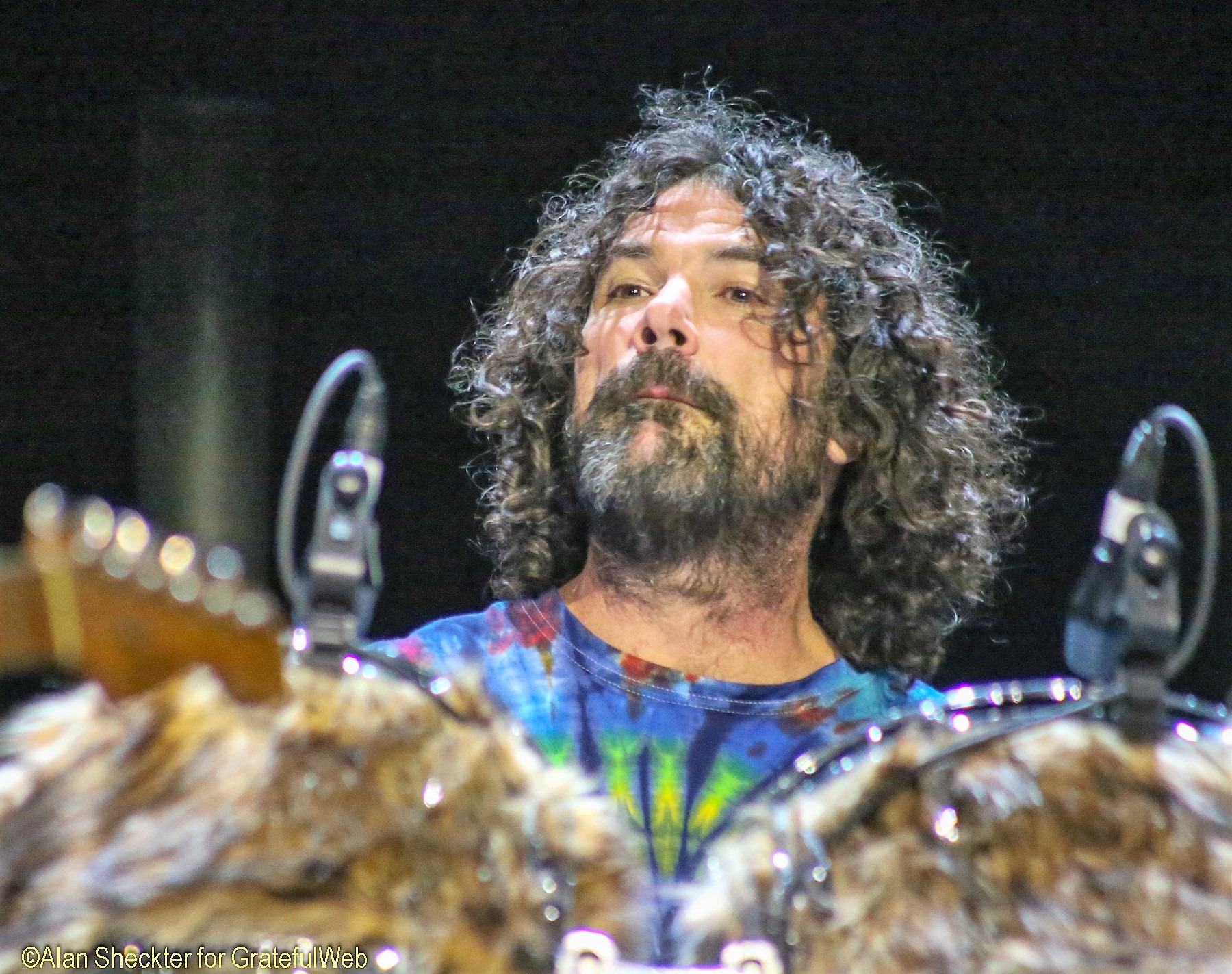
Jay: Yeah, man. He really is.
GW: I caught a really smokin’ Desolation Row from one of your Zoom shows recently.
Jay: Yeah. He doesn’t seem like he’s ever slowing down.
GW: I don’t know how he has all this energy. I’m impressed.
Jay: I know. Even when we’re at rehearsal, we’ll go, “Okay, let’s take a break,” and then he’ll keep playing. Then it’s like, you’re thinking, “Uh, should we keep playing?” Because we just took a break, but he’s still playing. [laughter]
GW: That’s great. It’s funny, because Keller Williams—I talked to him a while back—and he was talking about touring with RatDog and how Bob was nonstop. Well, you were with them when Keller was playing along on that tour.
Jay: Oh yeah.
GW: Well, he said, after the gig, Bob would be ready to play in the bus later. He would just keep going.
Jay: Yep. [laughs] Yeah, man.
GW: Keller’s good people.
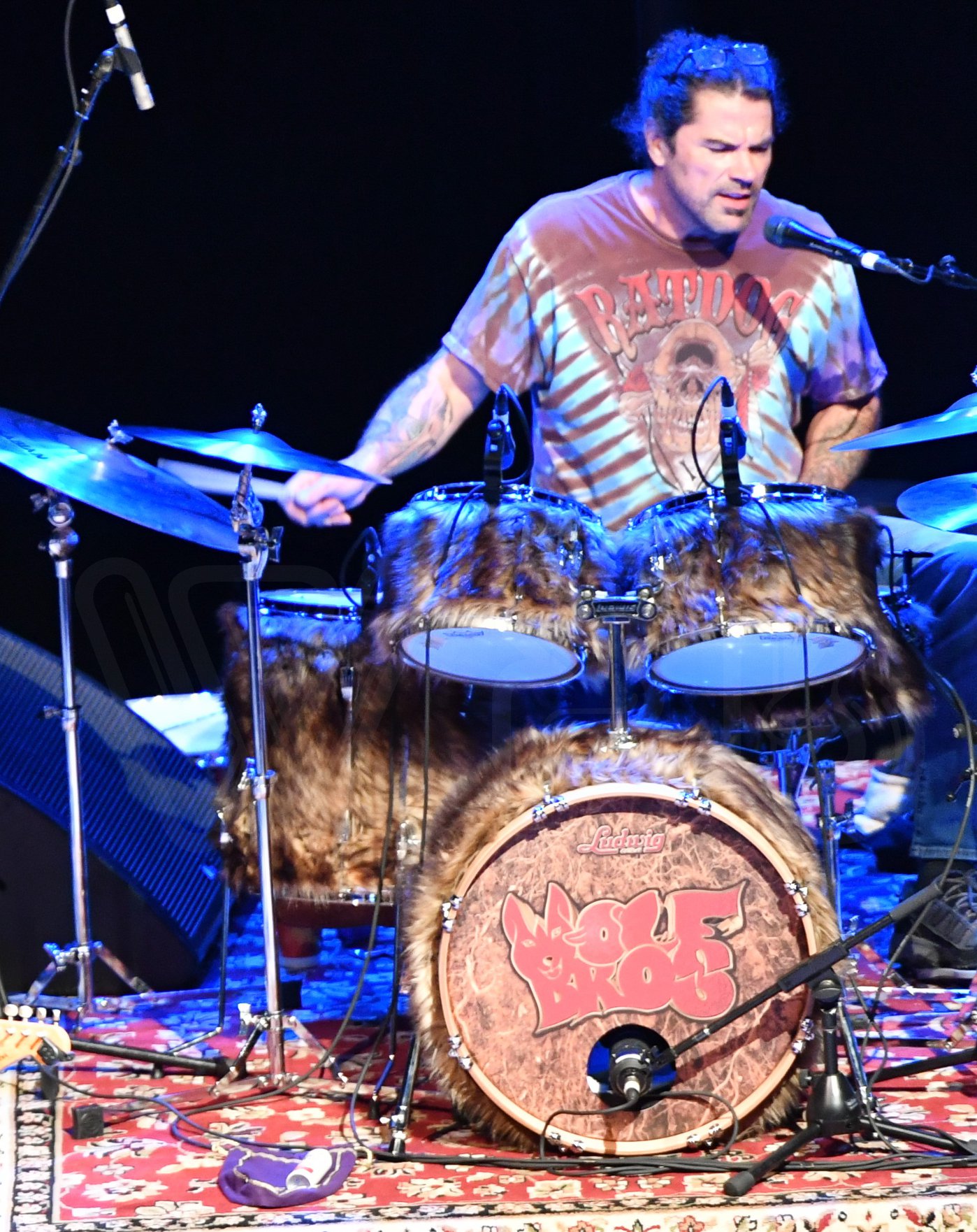
Jay: Yes he is. Love Keller.
GW: Well shit, man. We’ve about covered what we needed to cover.
Jay: Cool, man. I really appreciate it.
GW: You bet. Best of luck with everything, and I’ll let everyone know they can learn to be a drummer via you.
Jay: Awesome! Thanks so much, David.
GW: Our pleasure. Thank you for sharing your time, Jay.
Jay: Okay, bud. Have a good one.
" Take off your shoes, child, and take off your hat. Try on your wings and find out where it's at."





